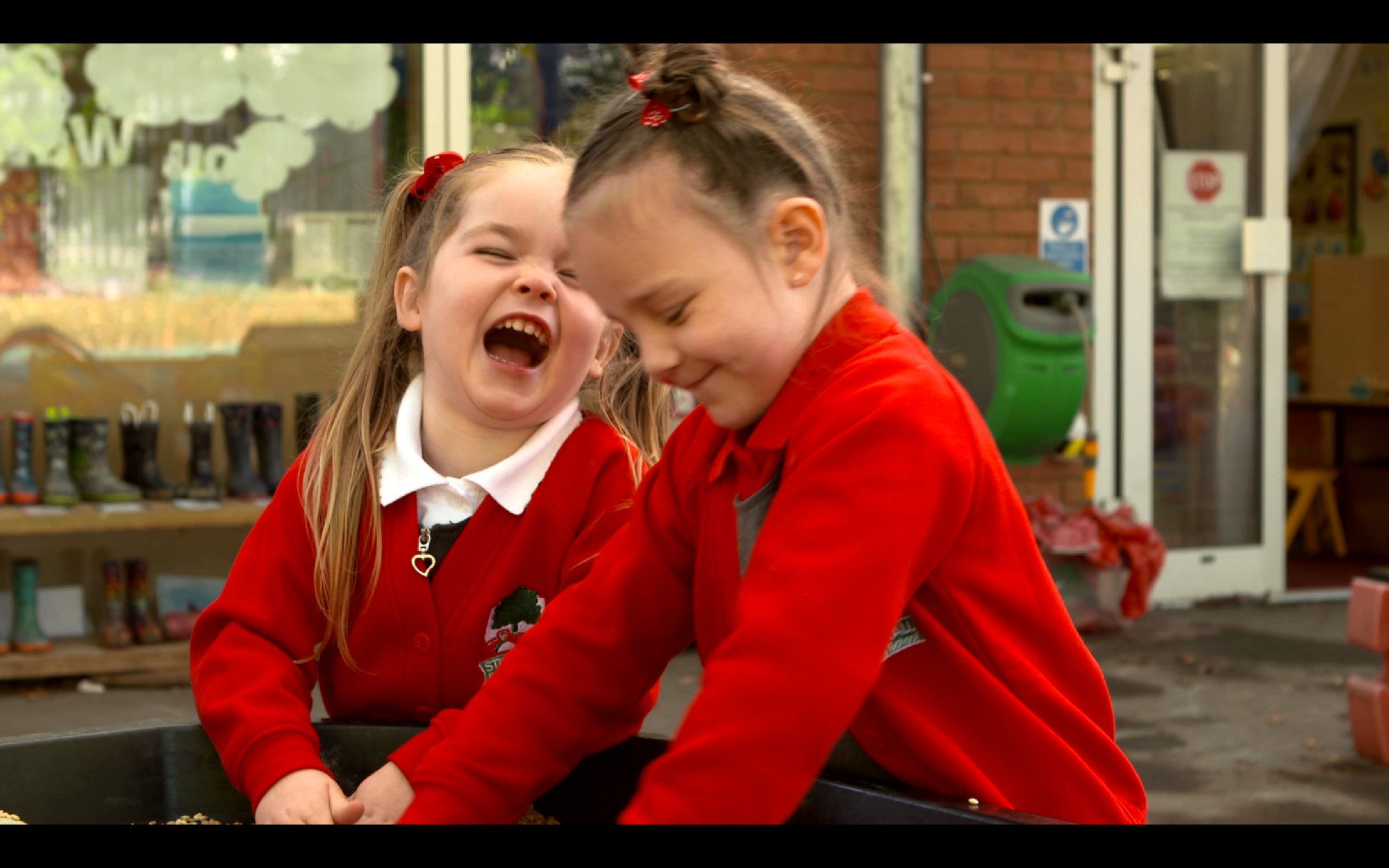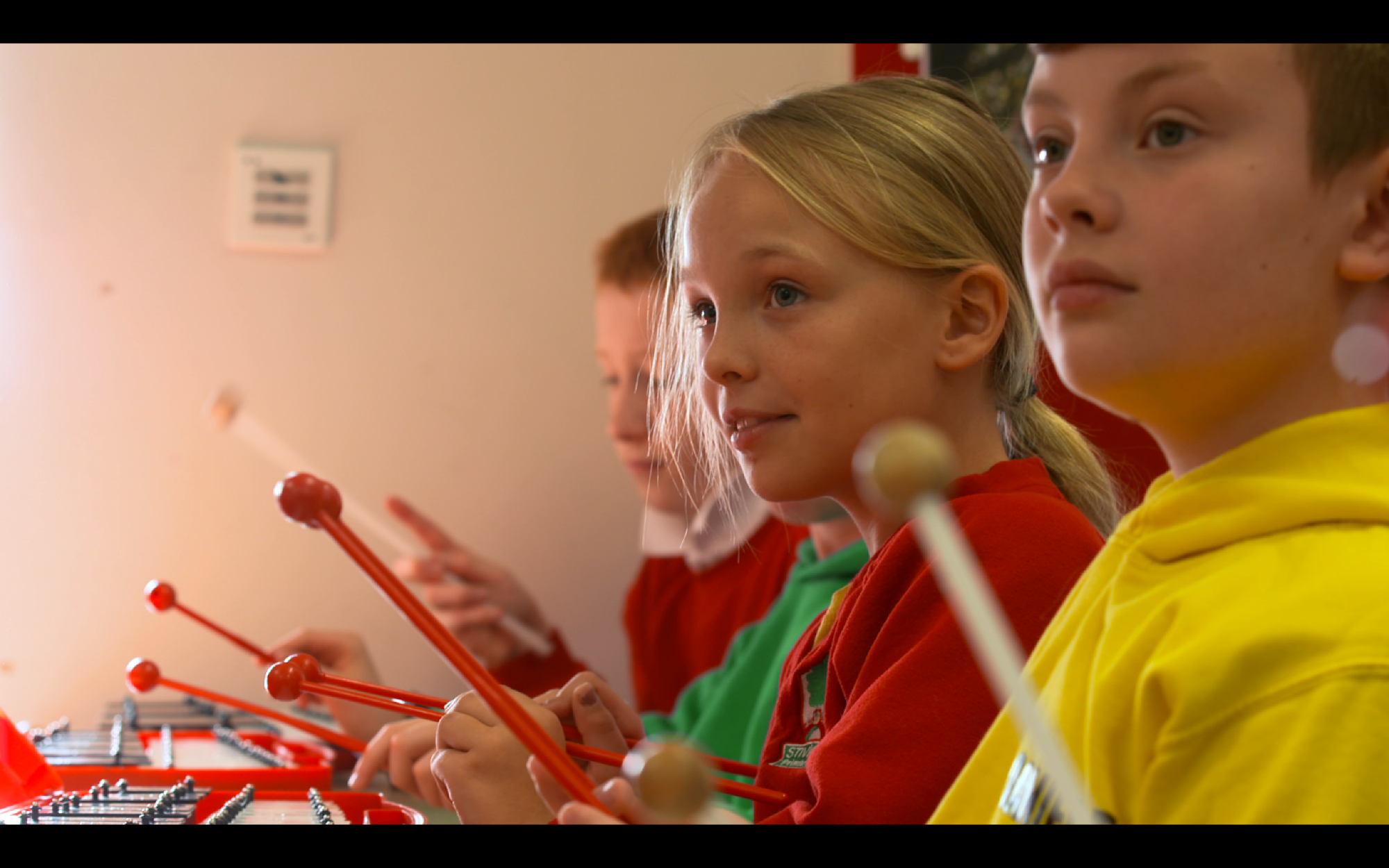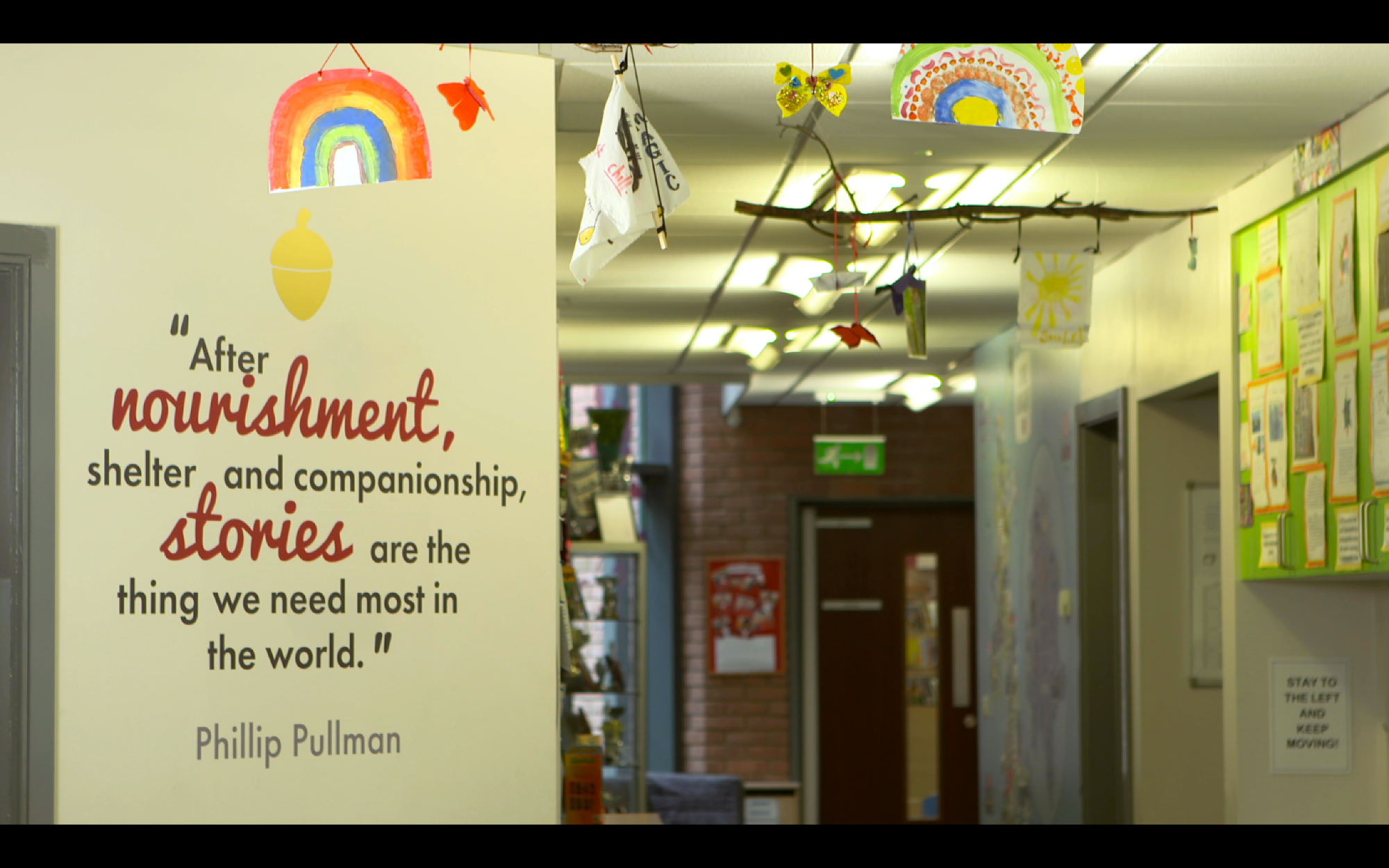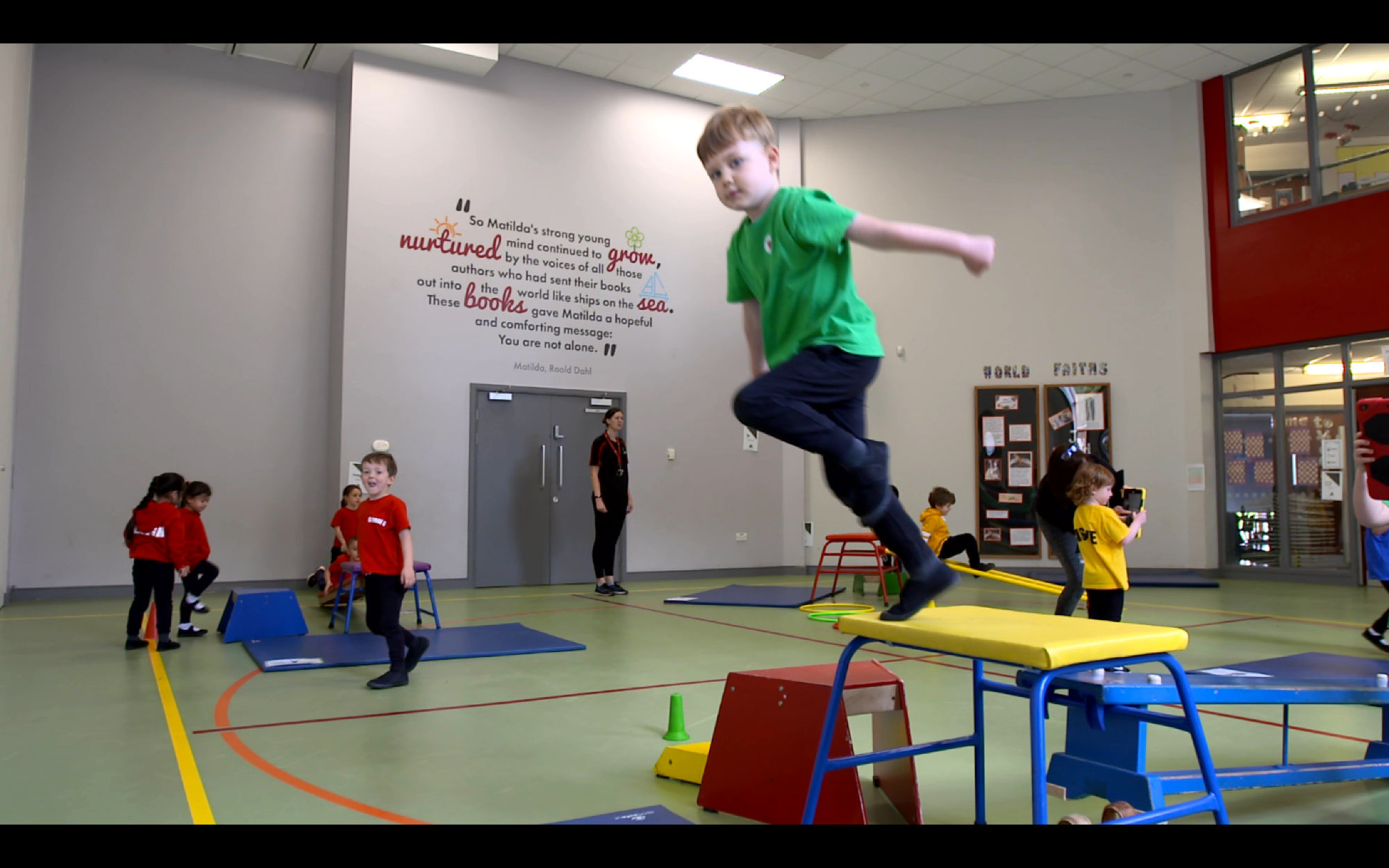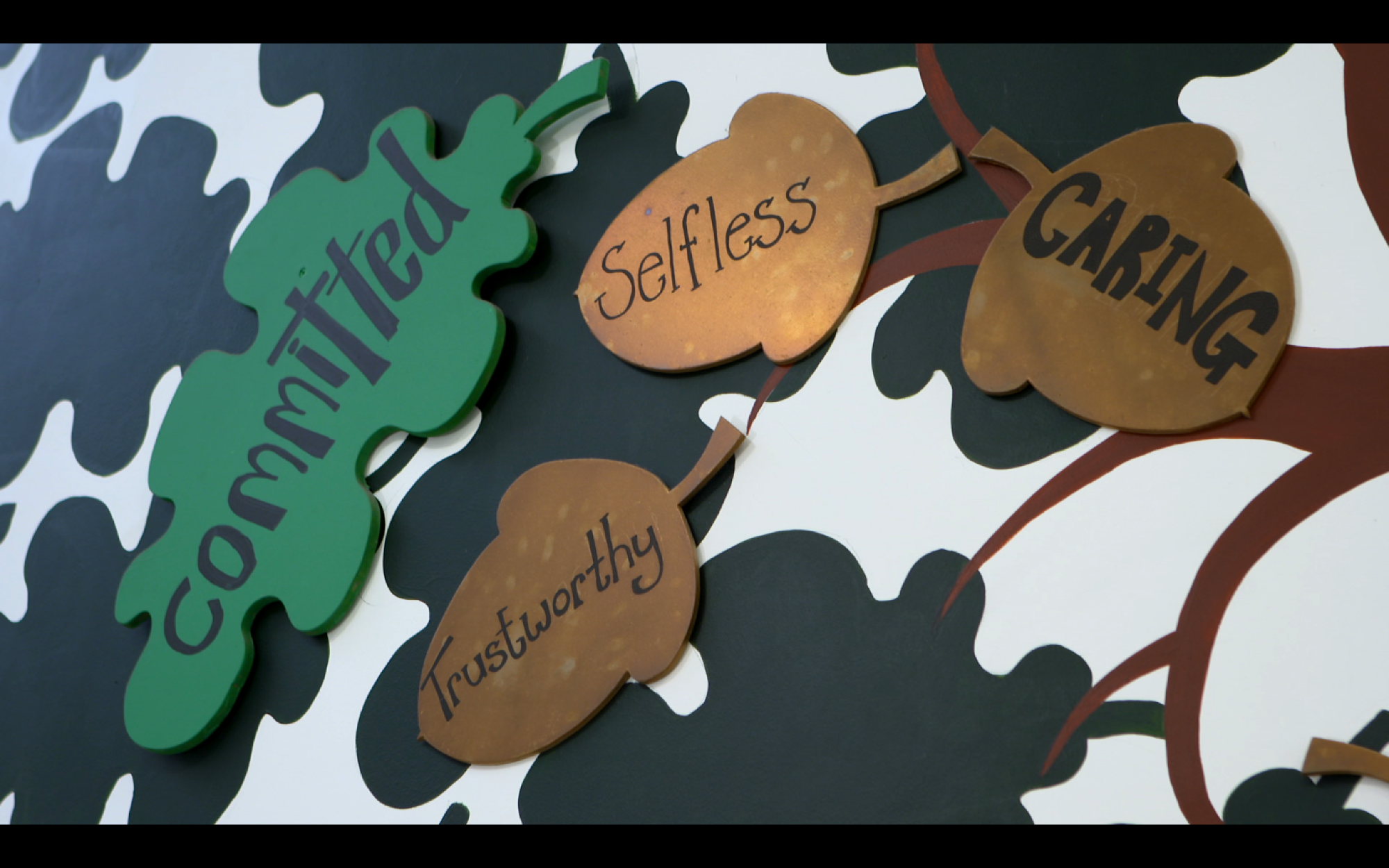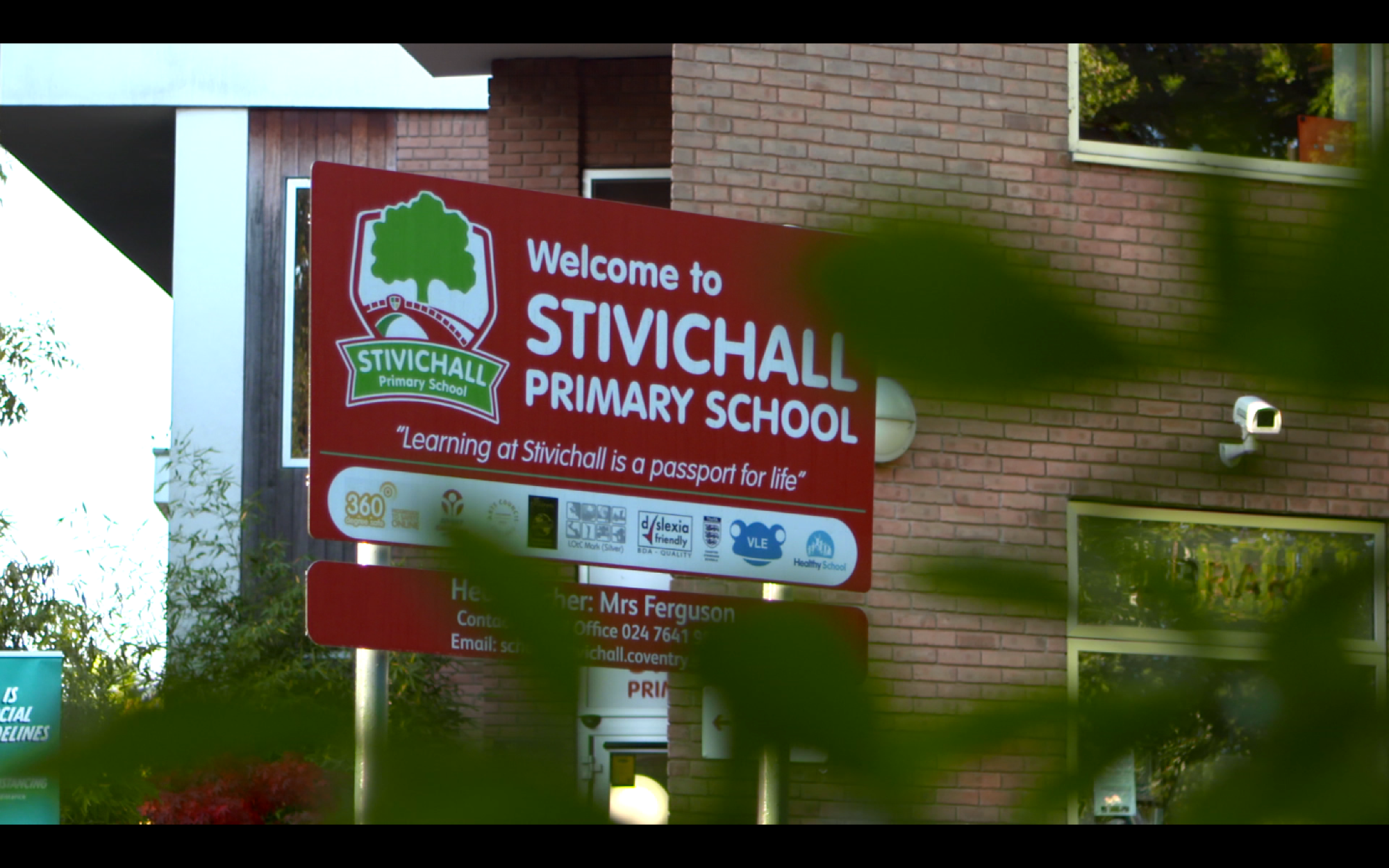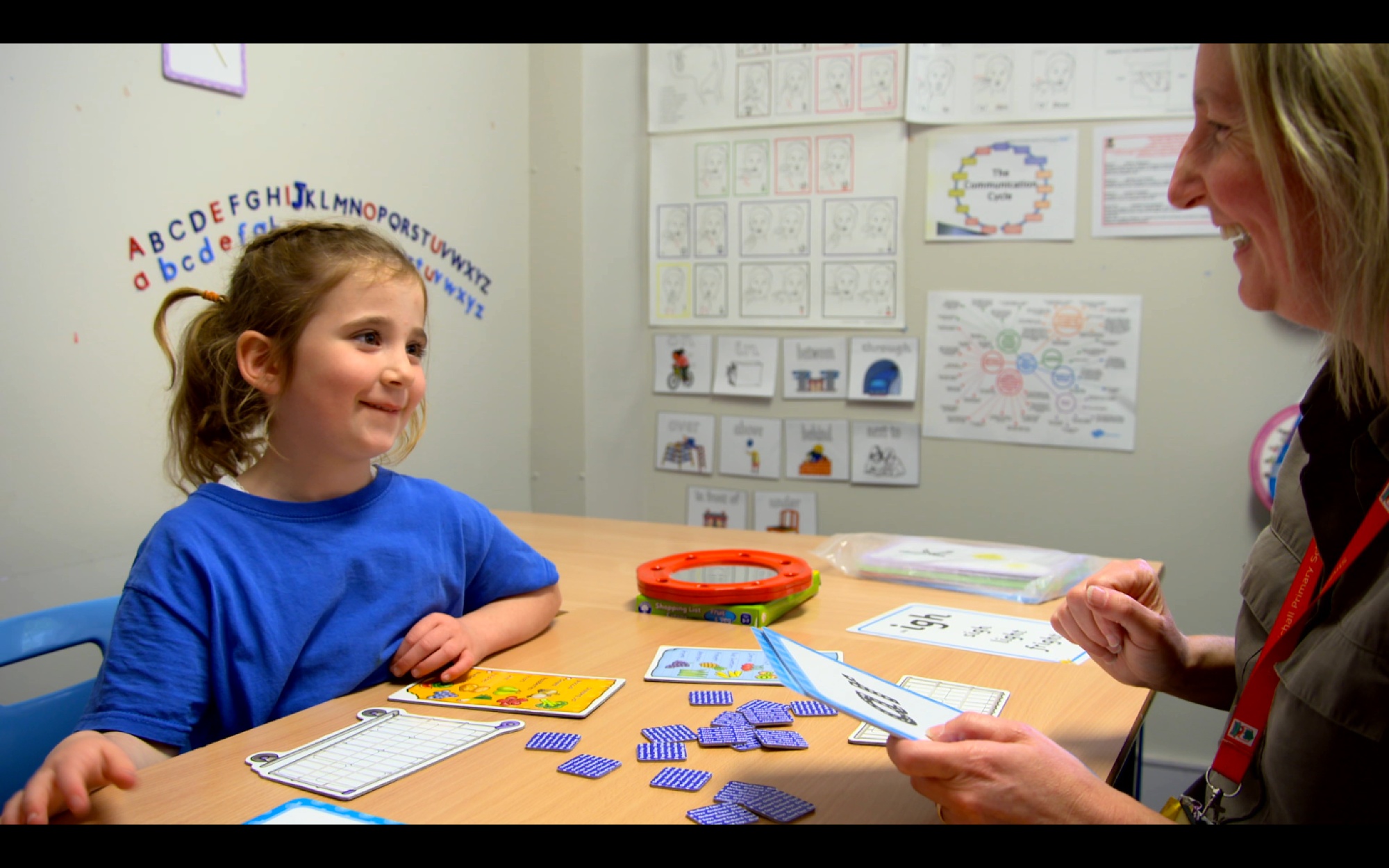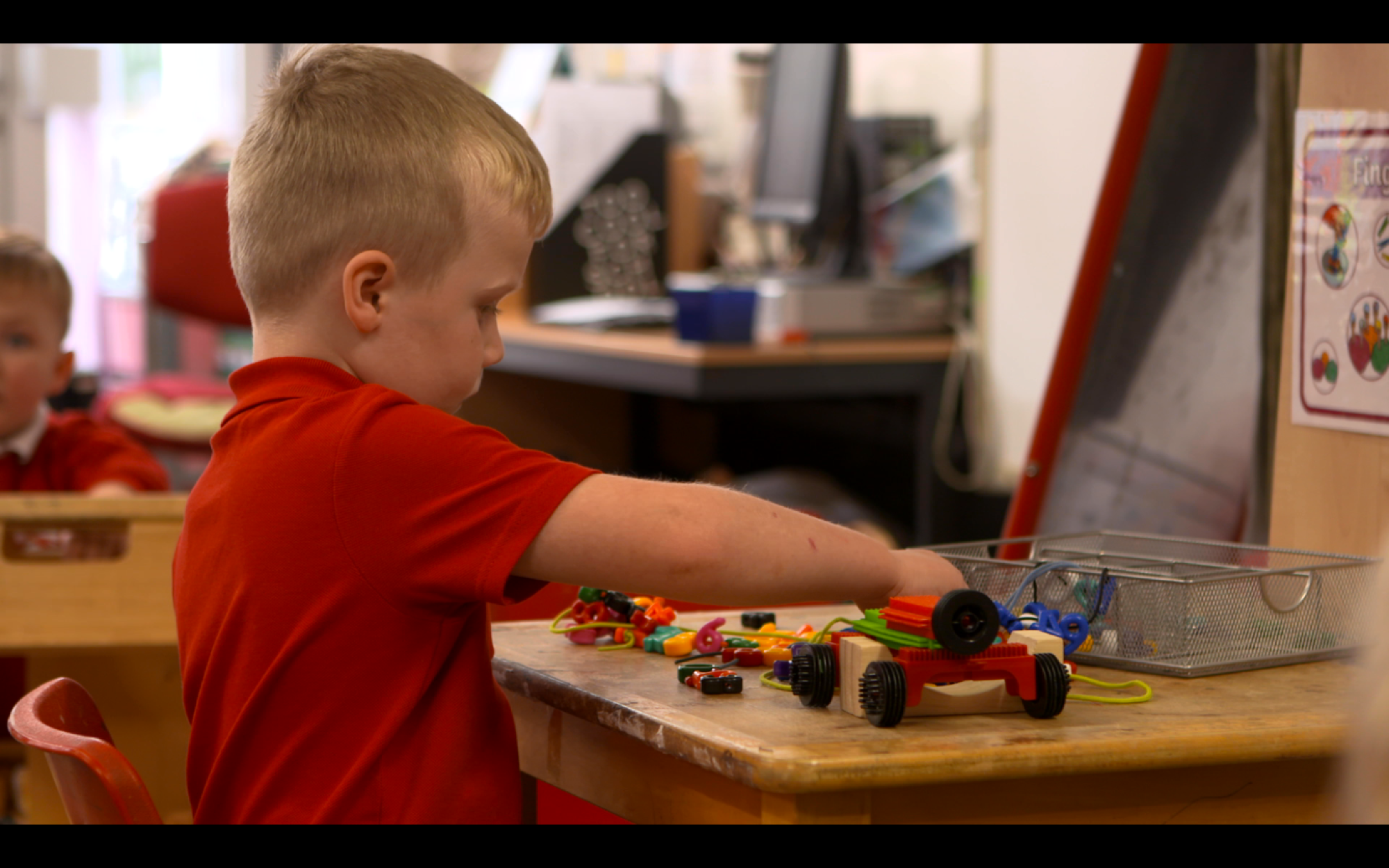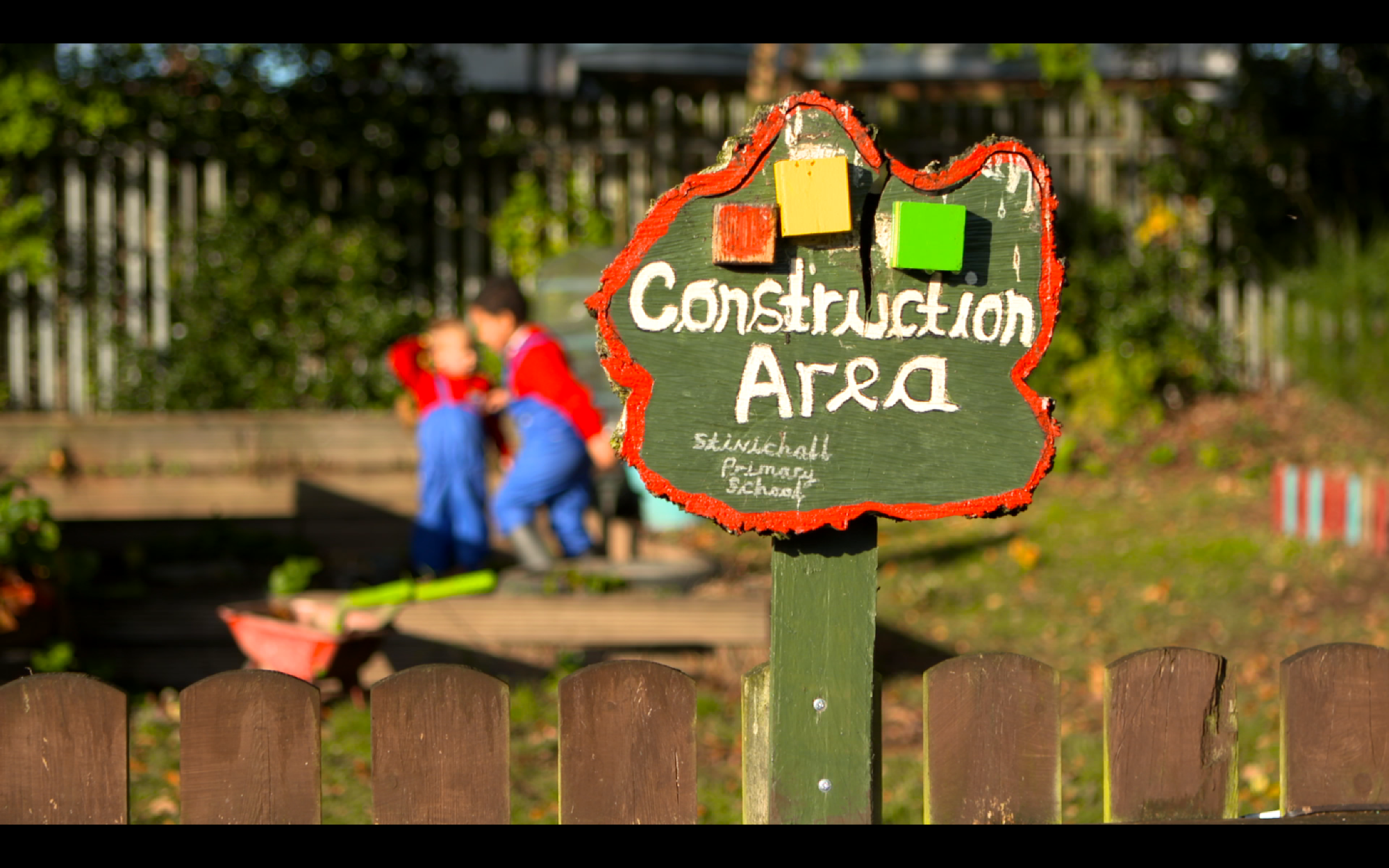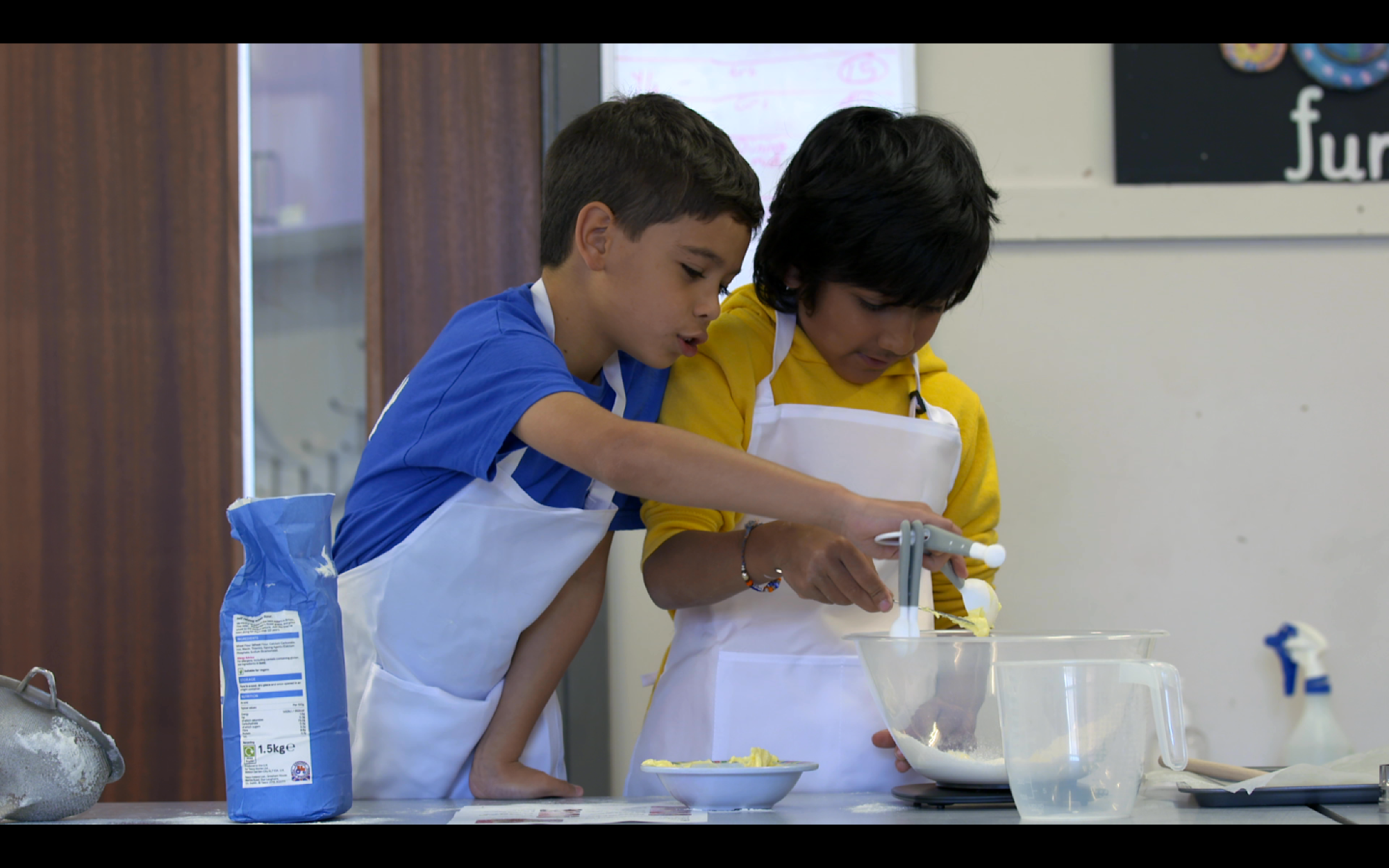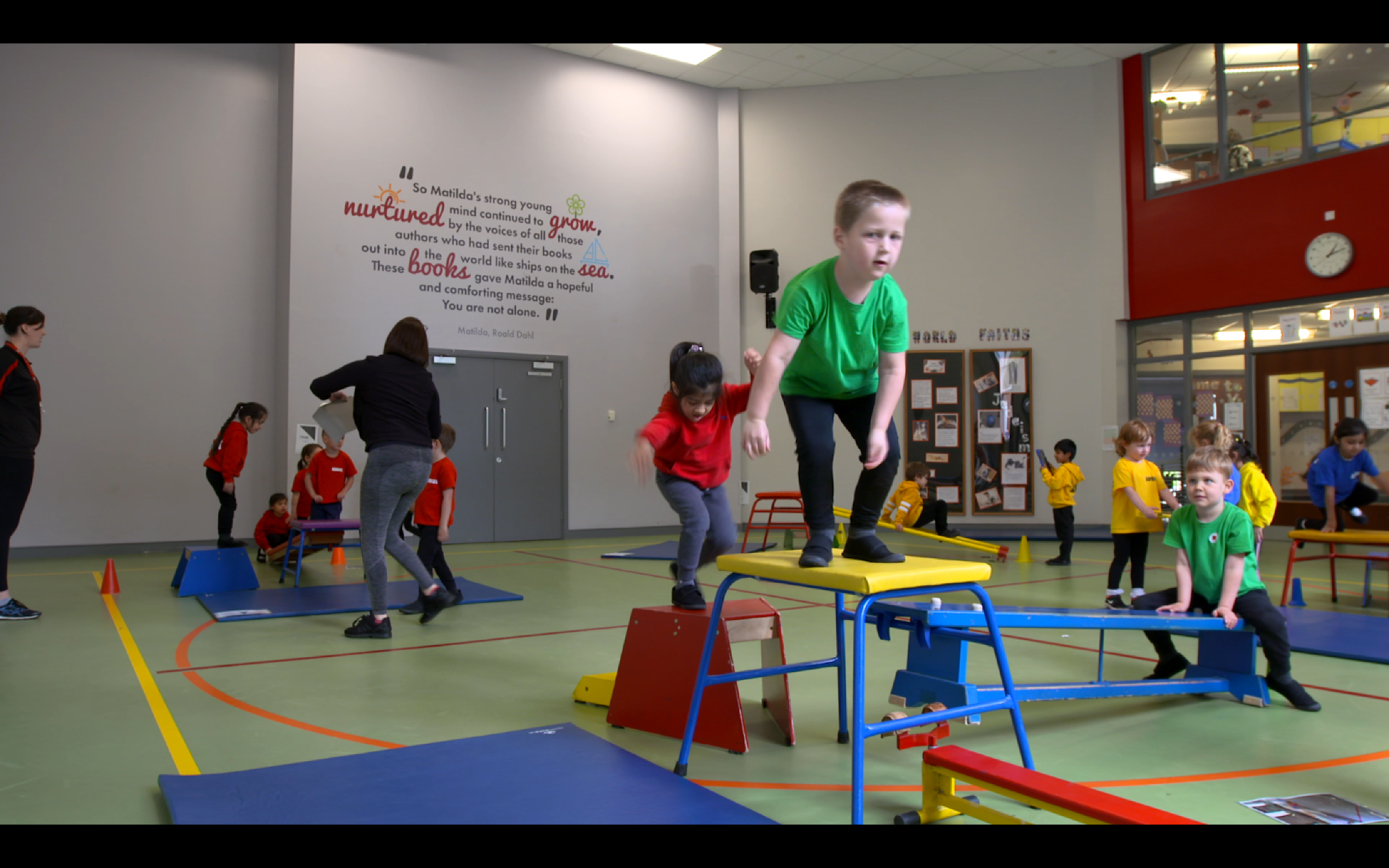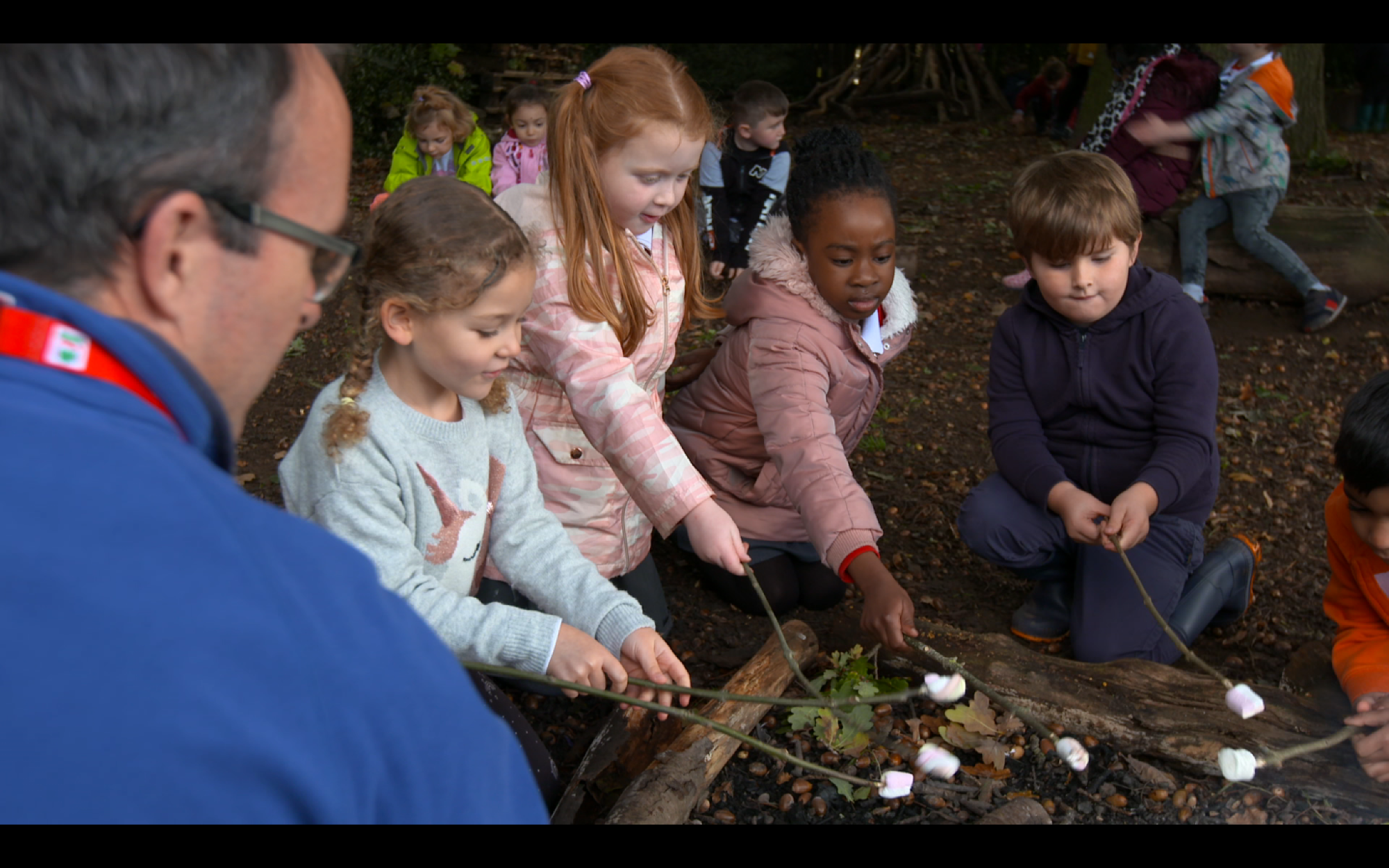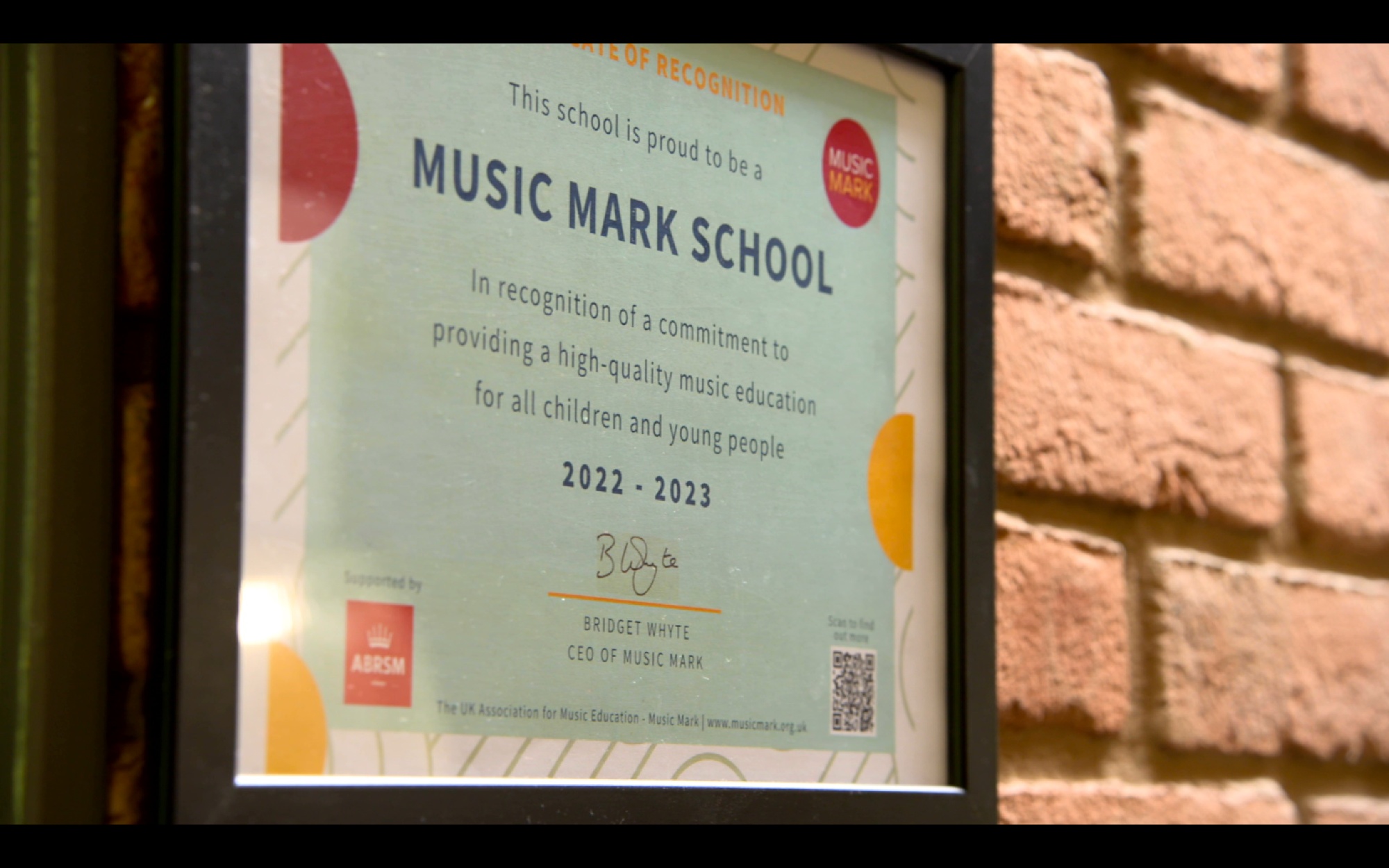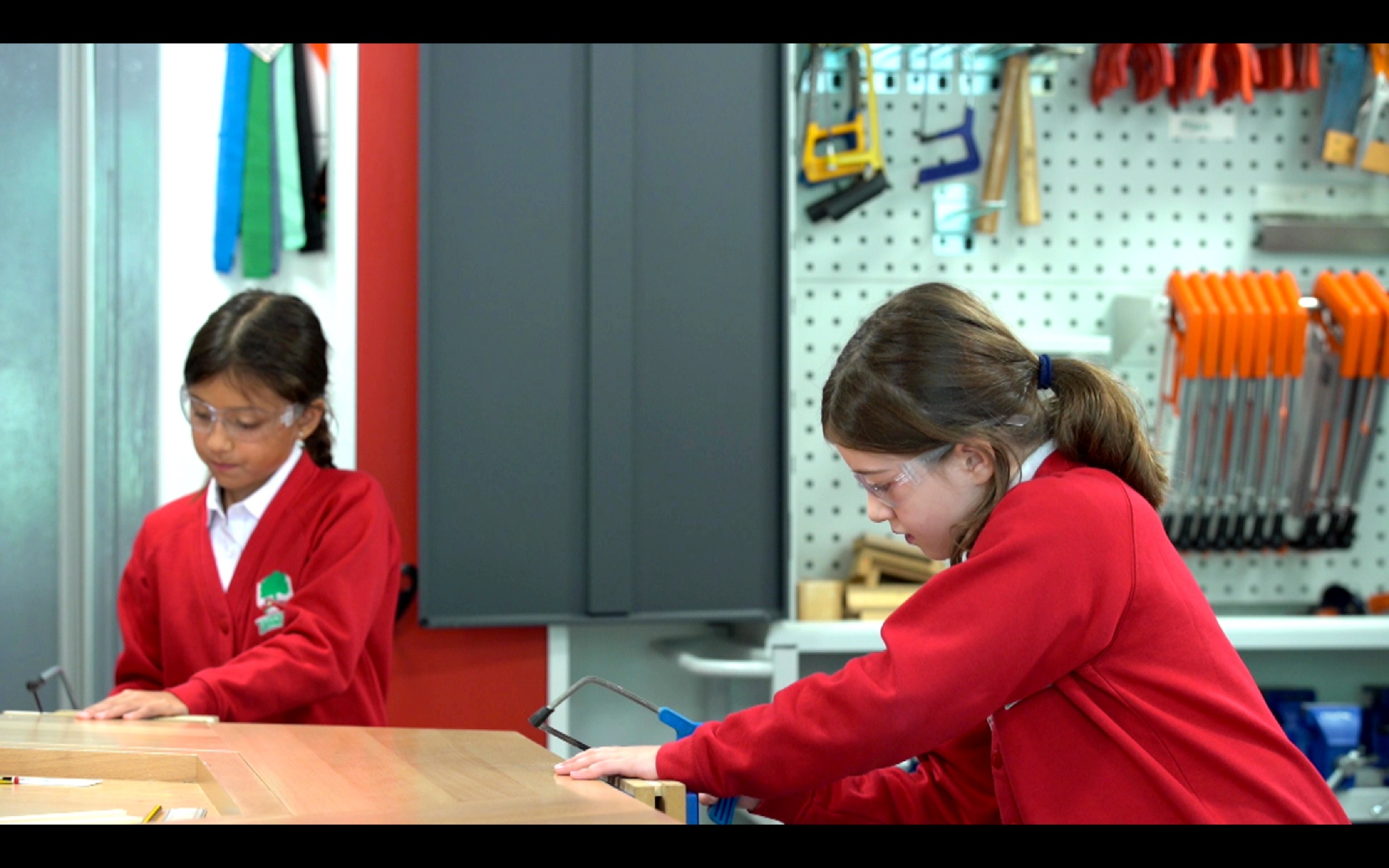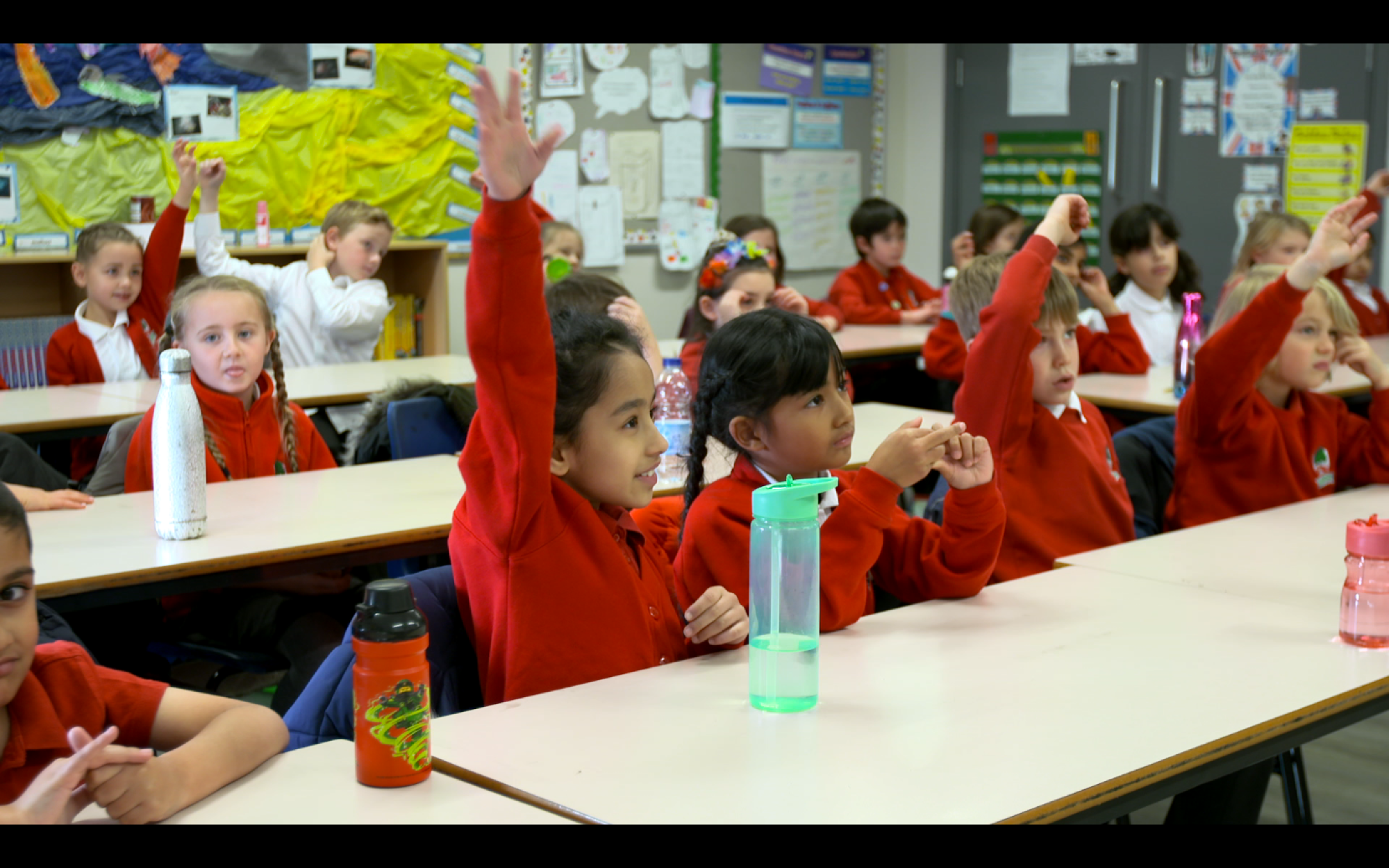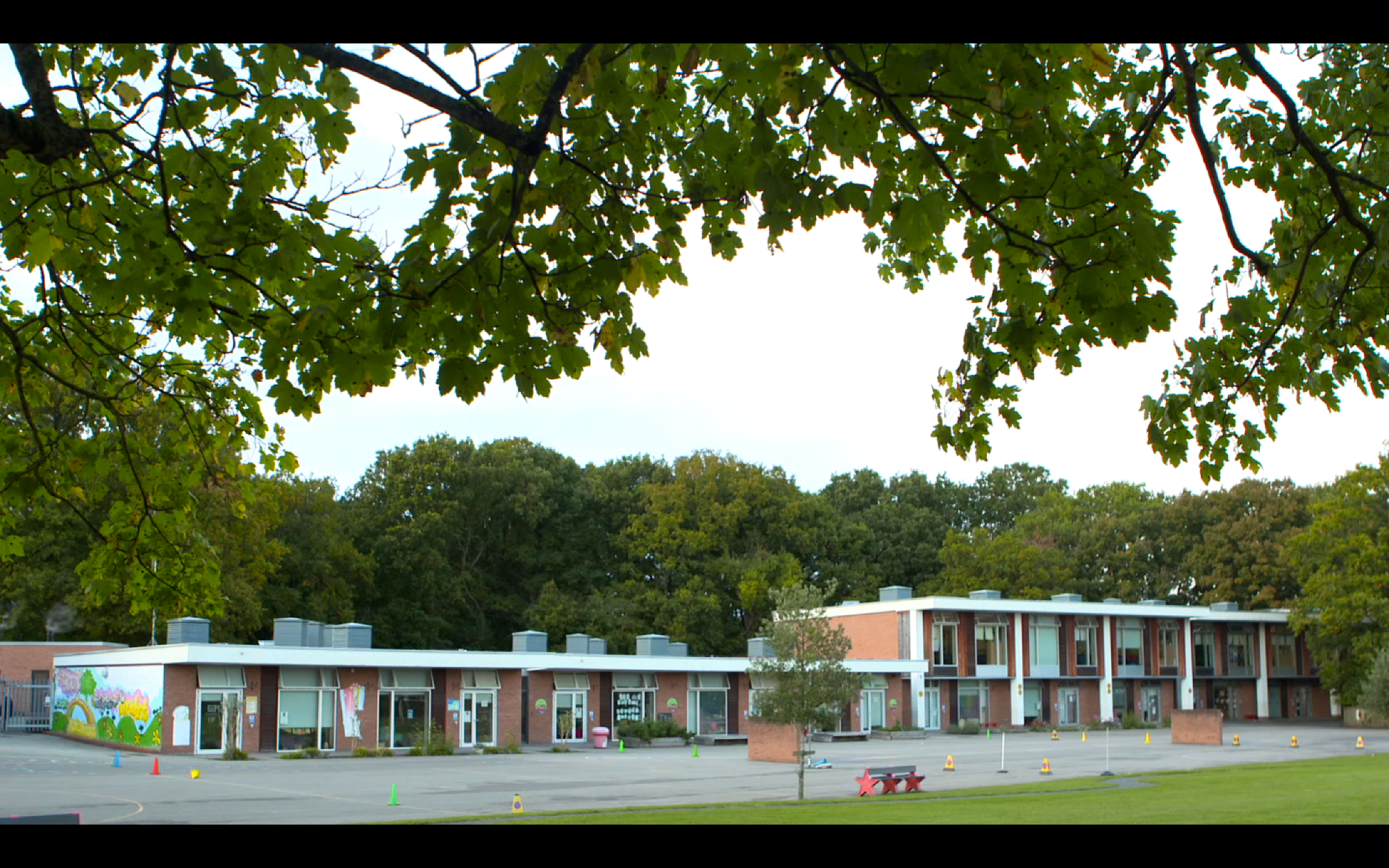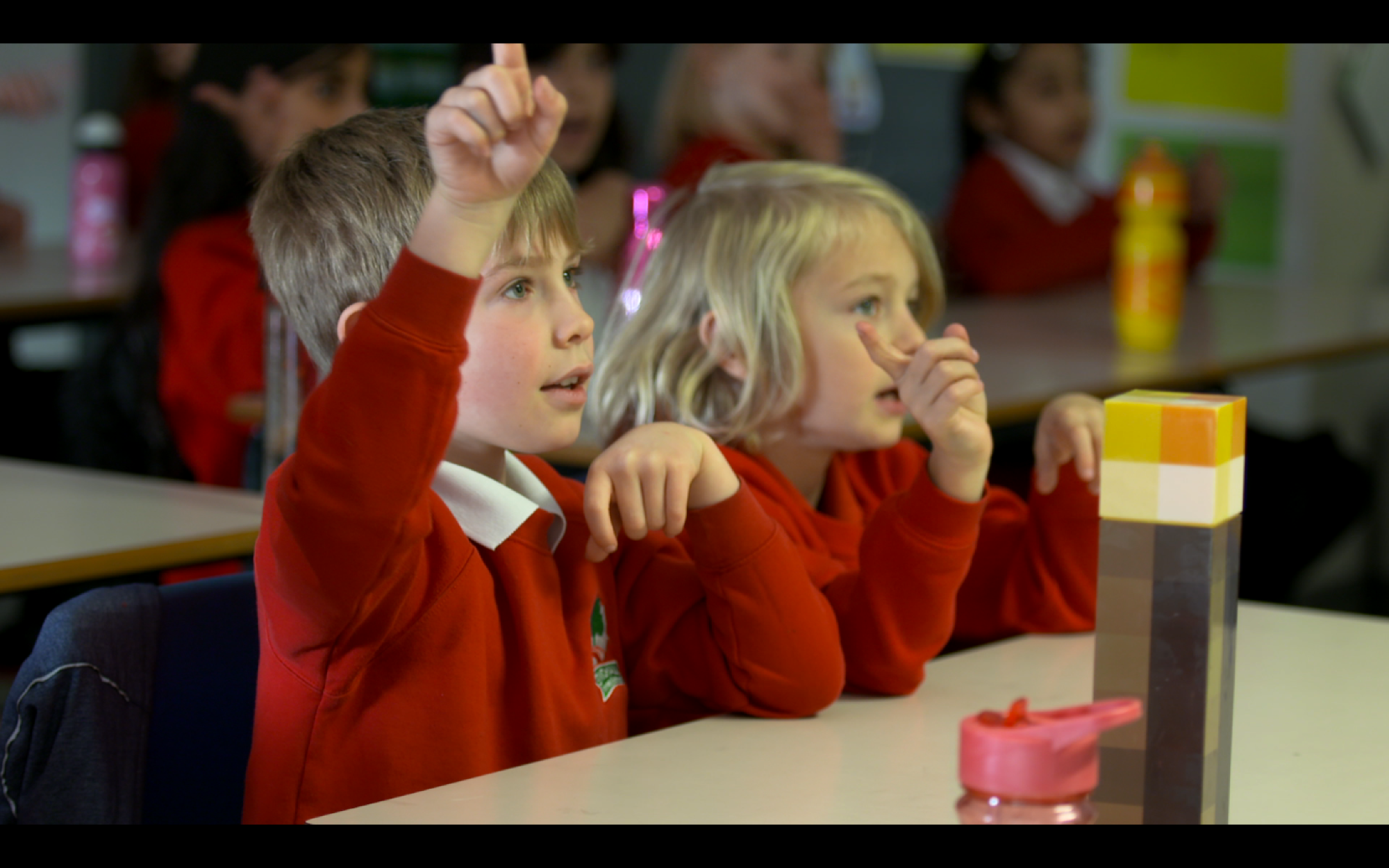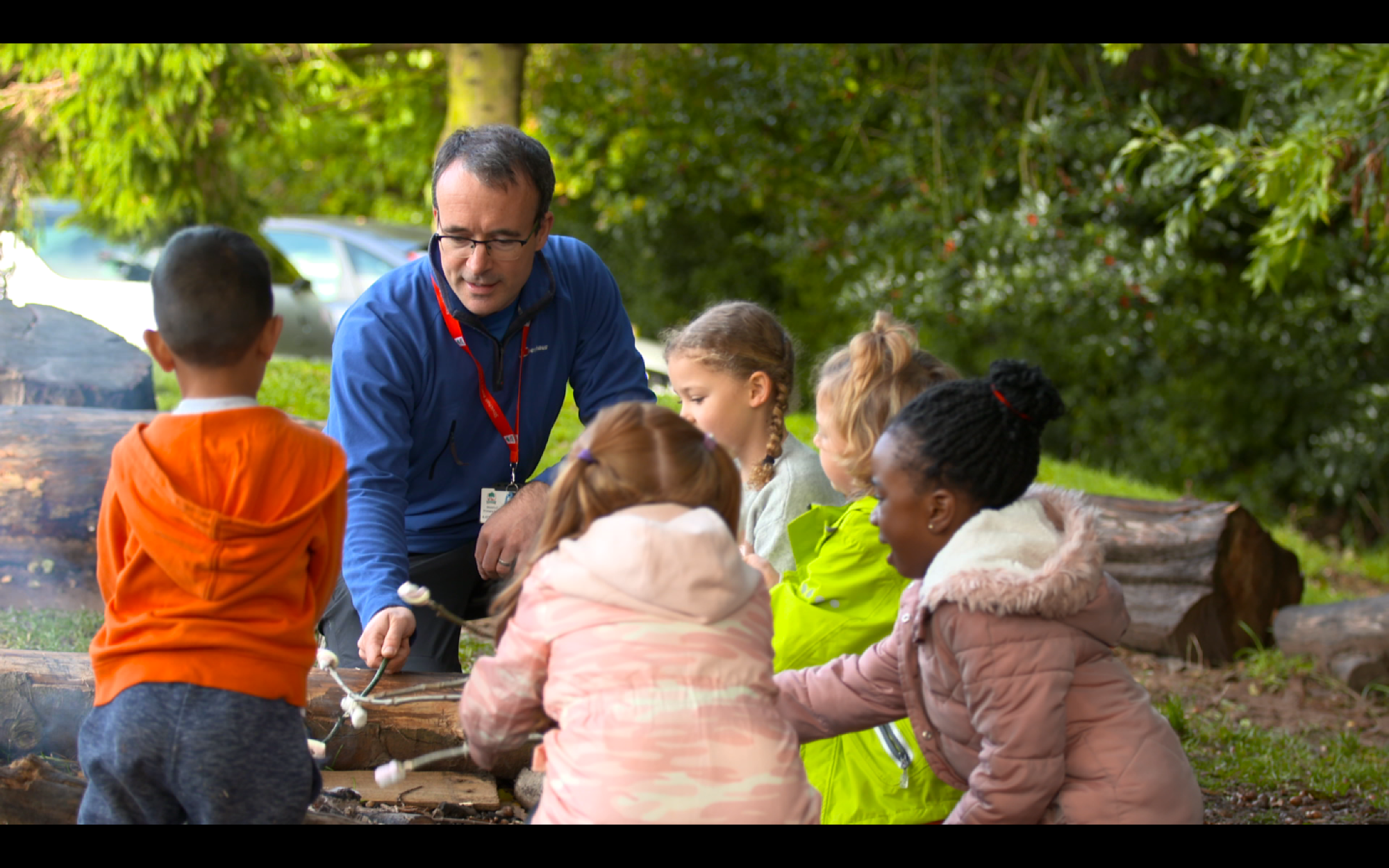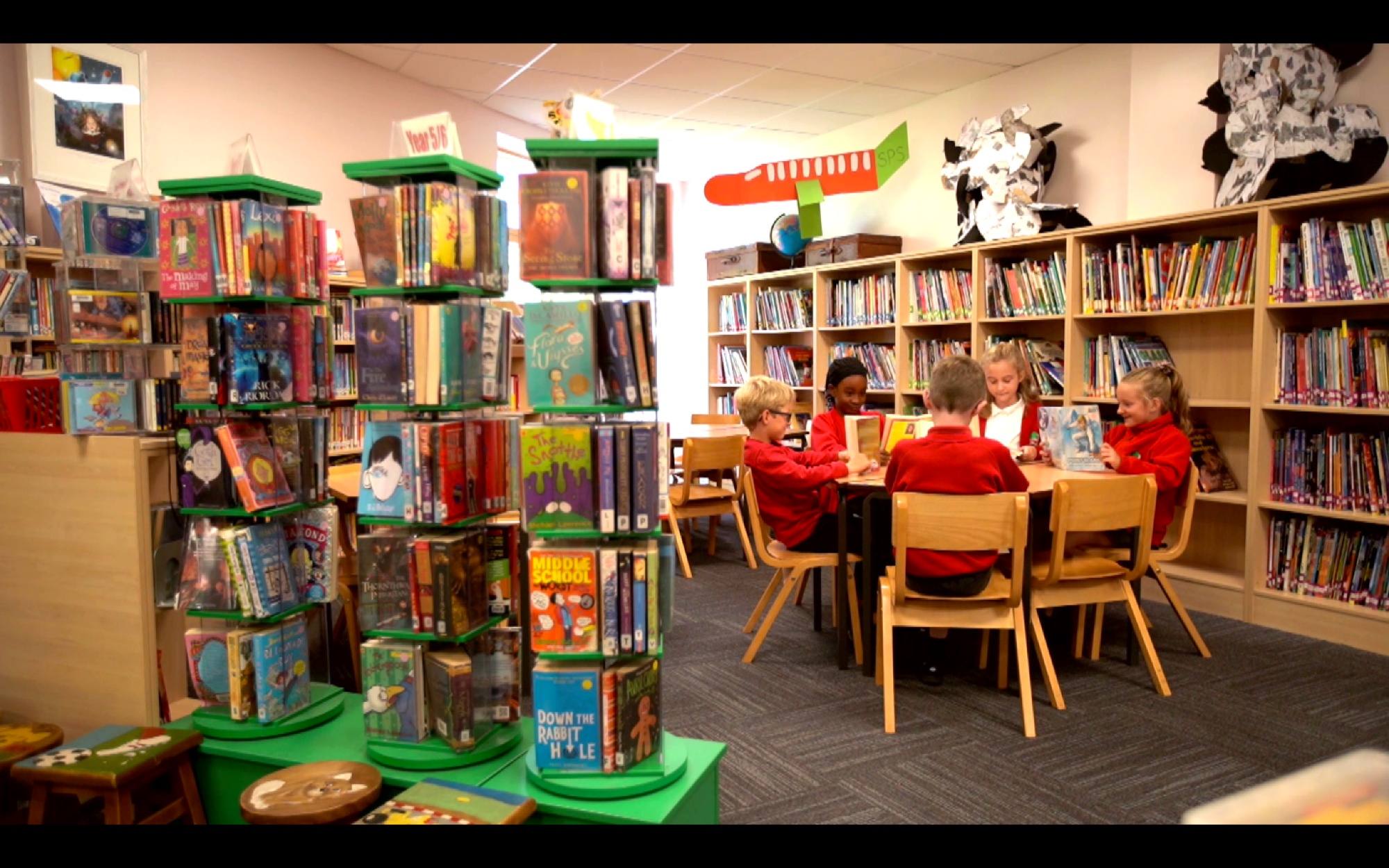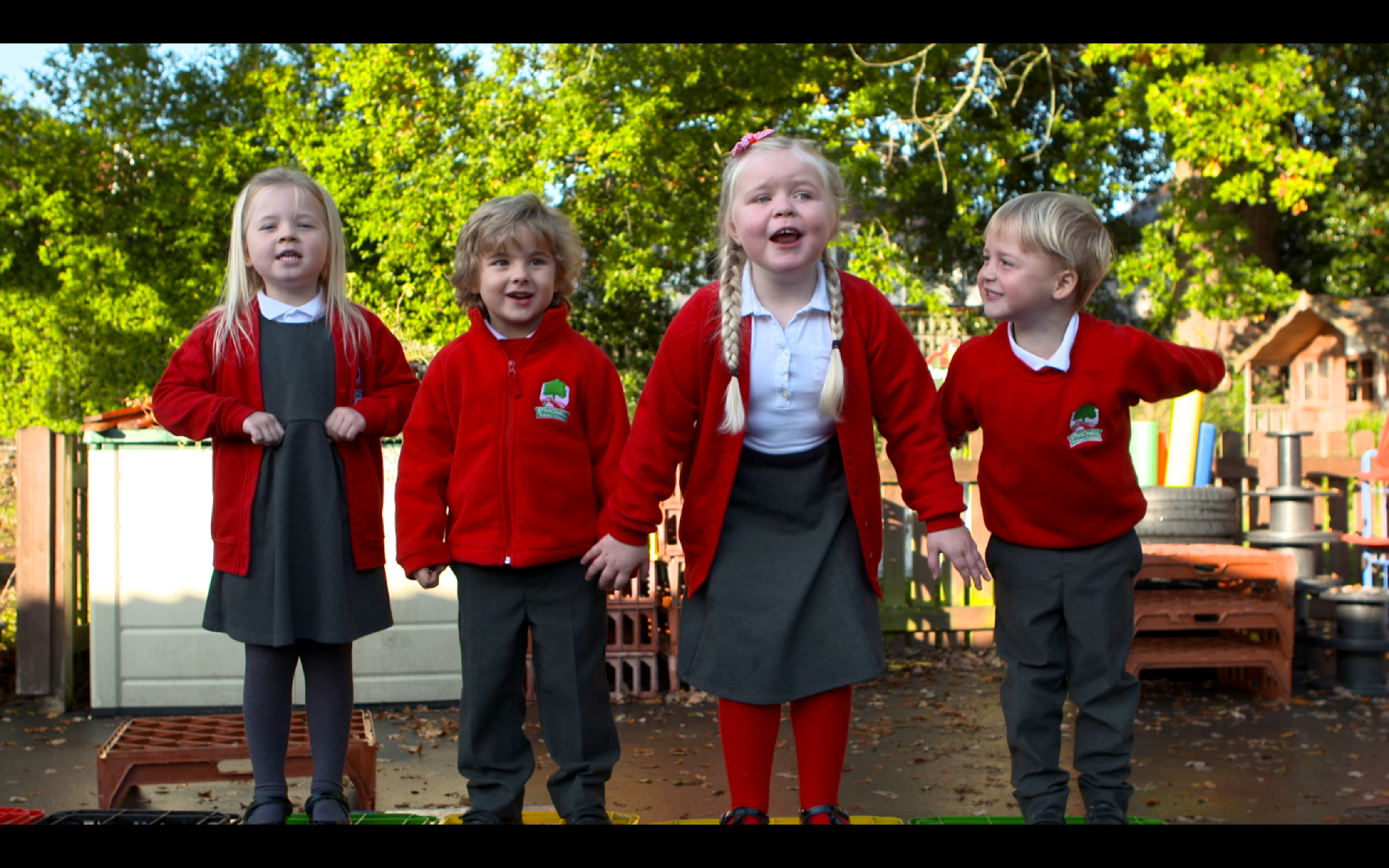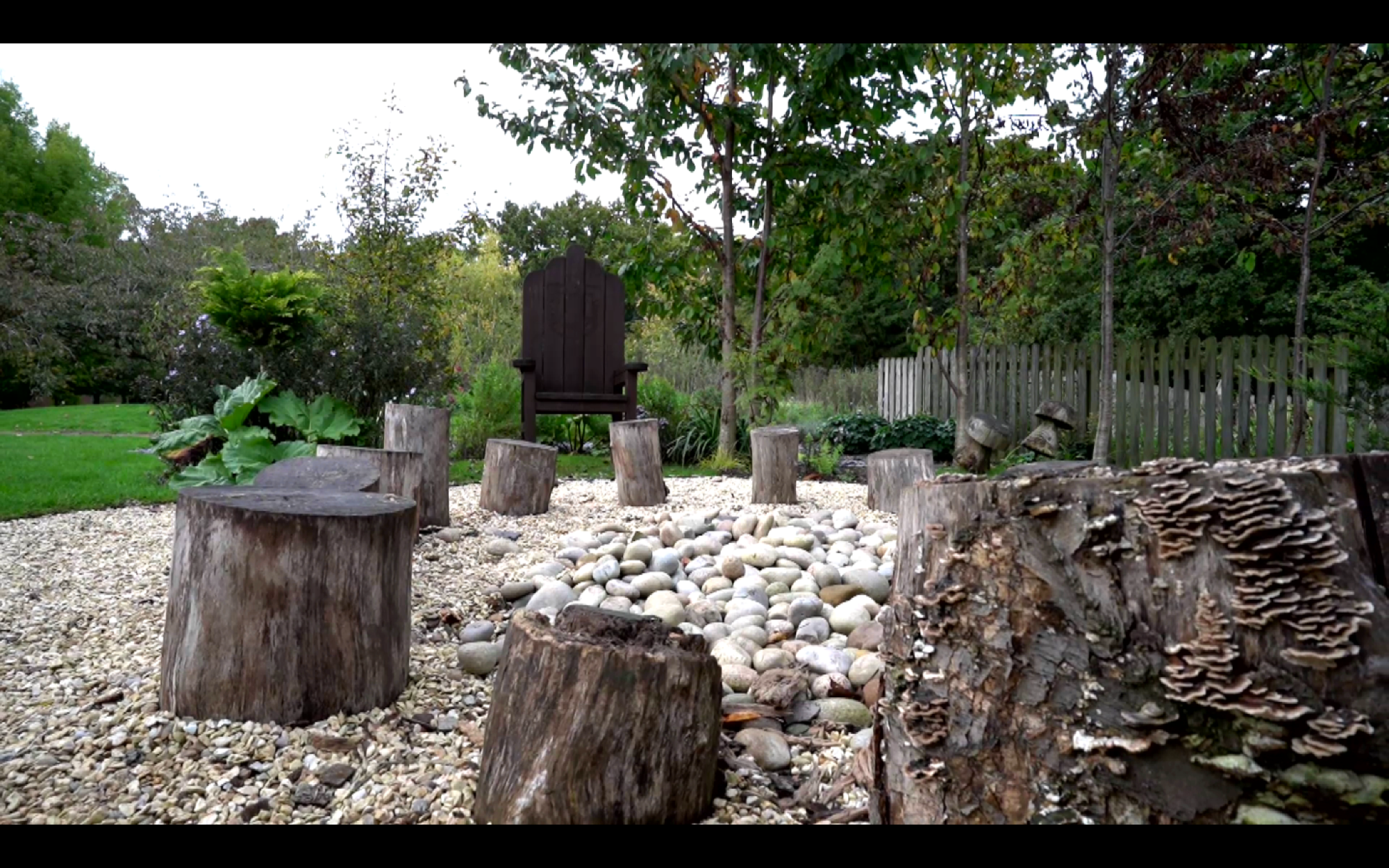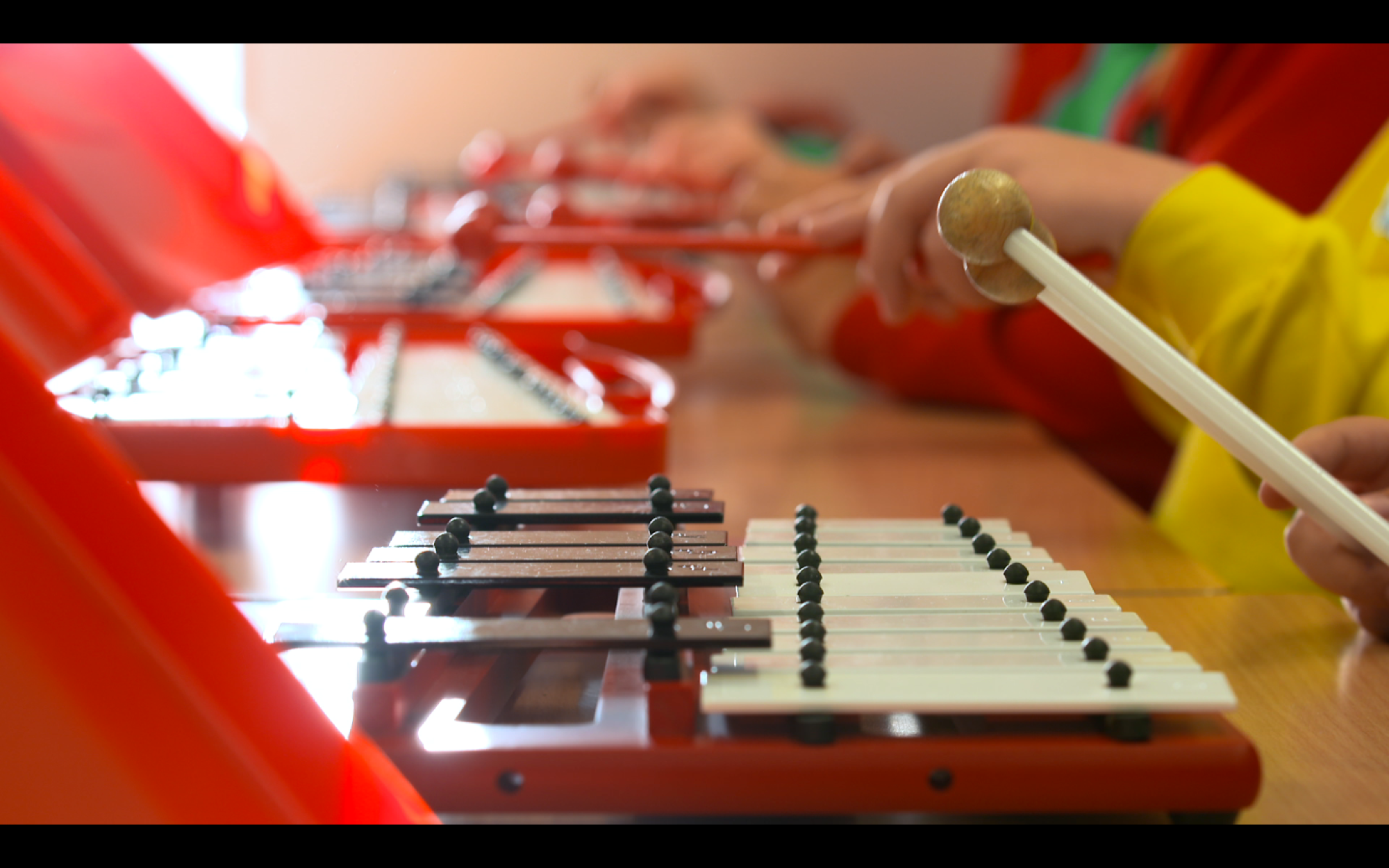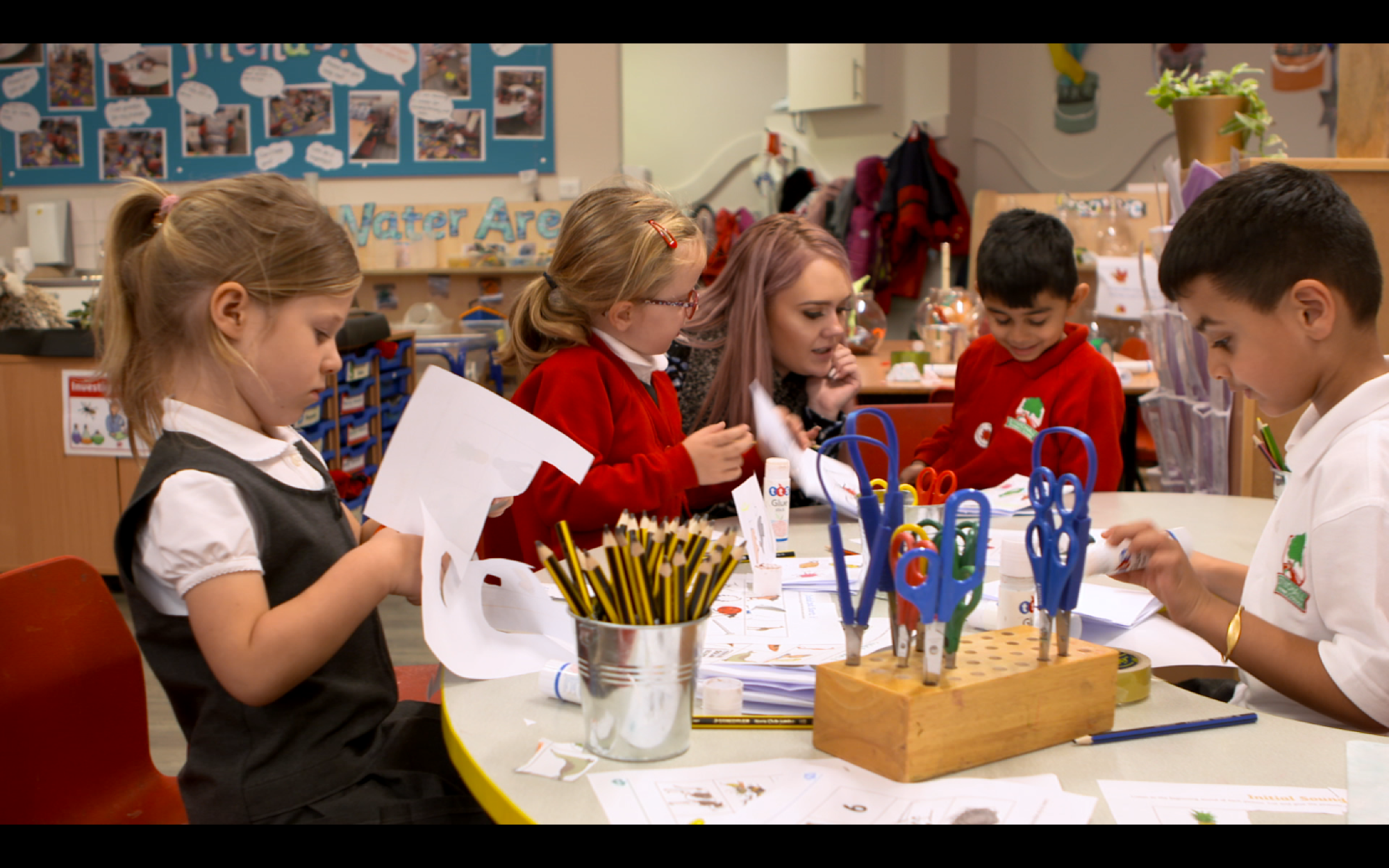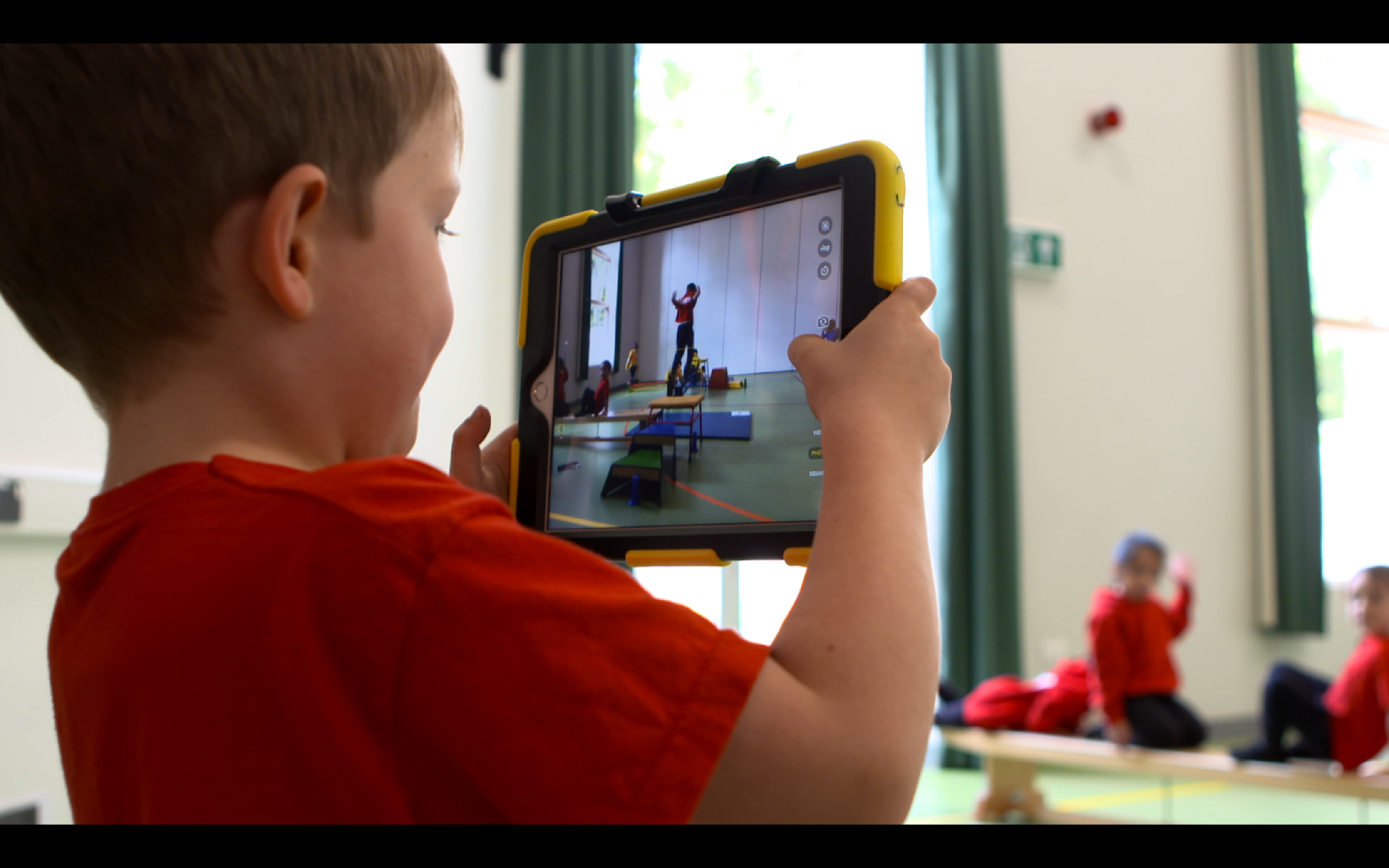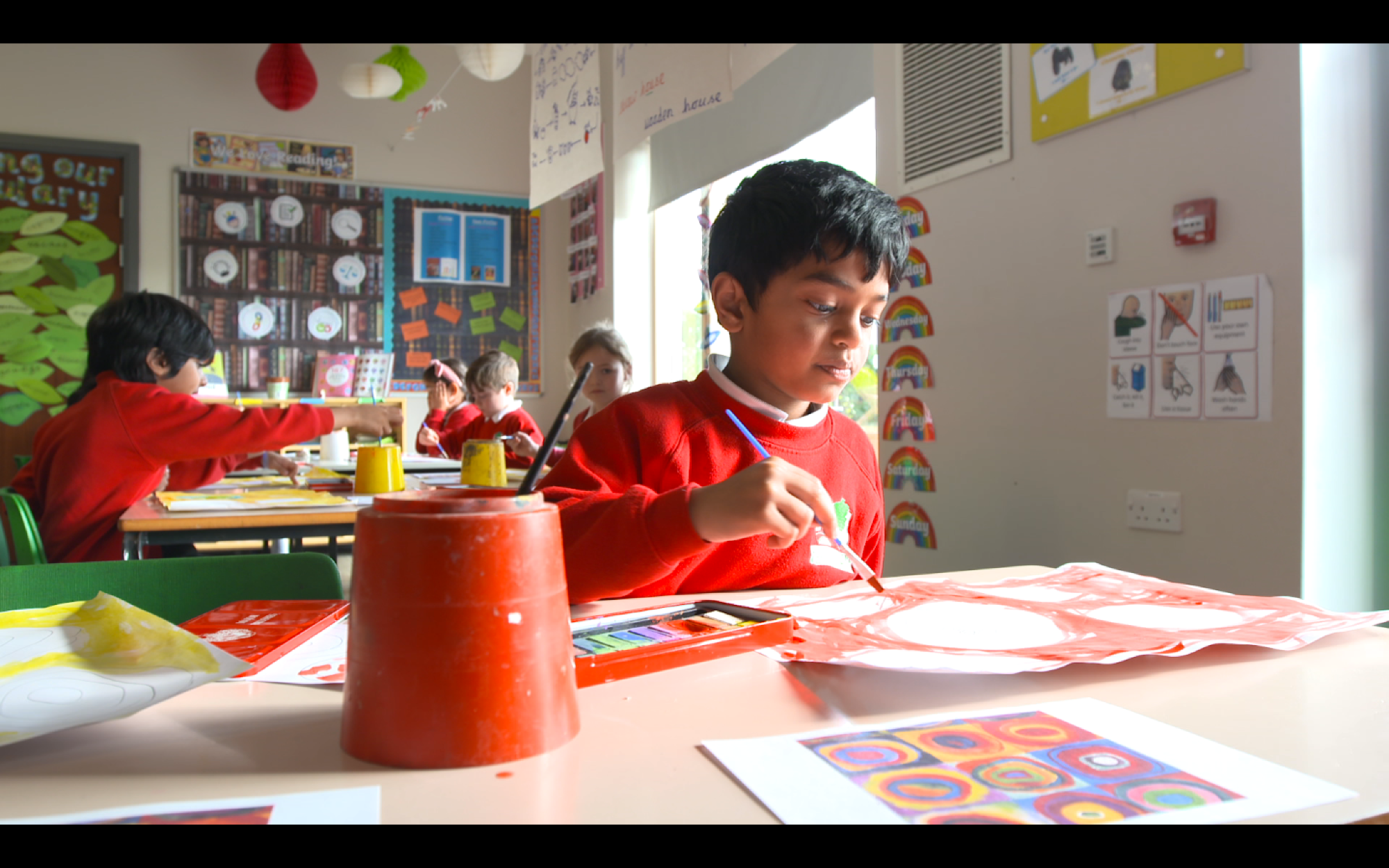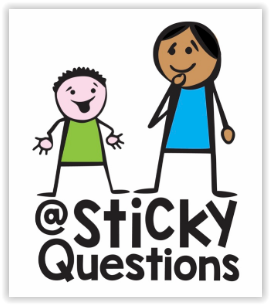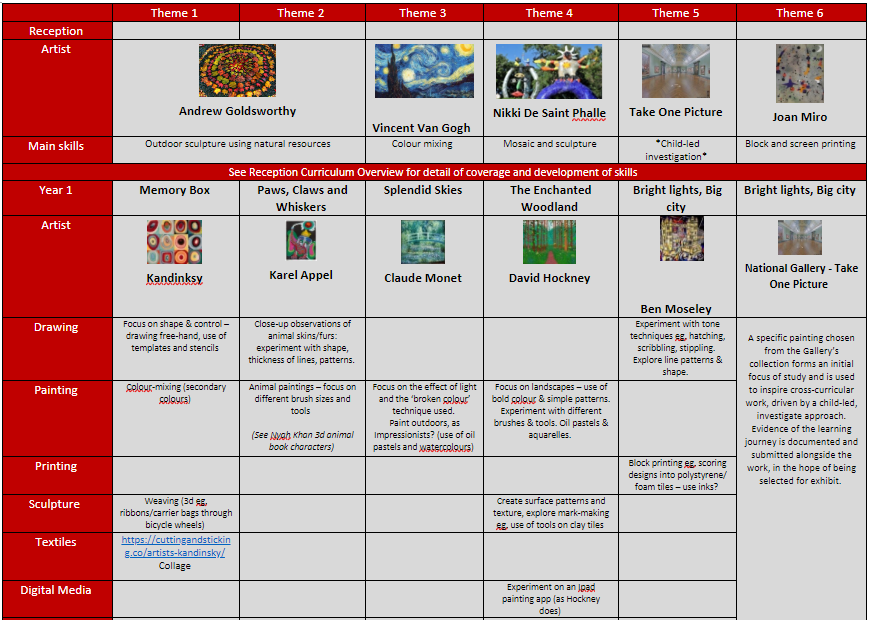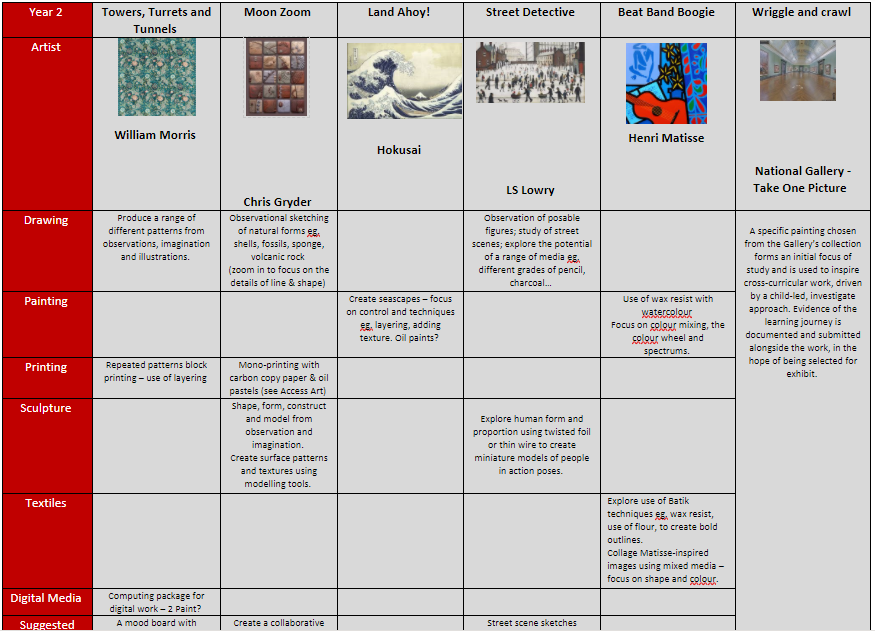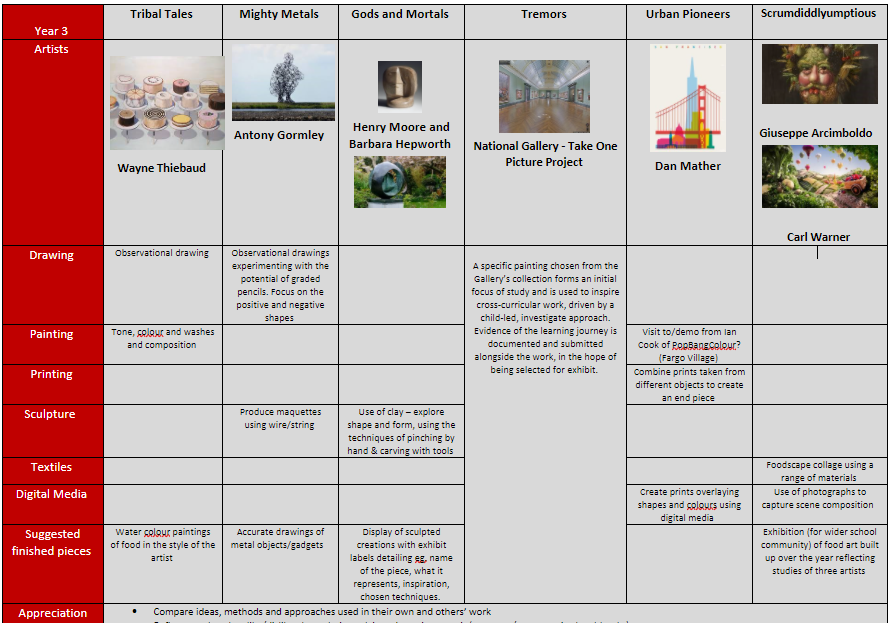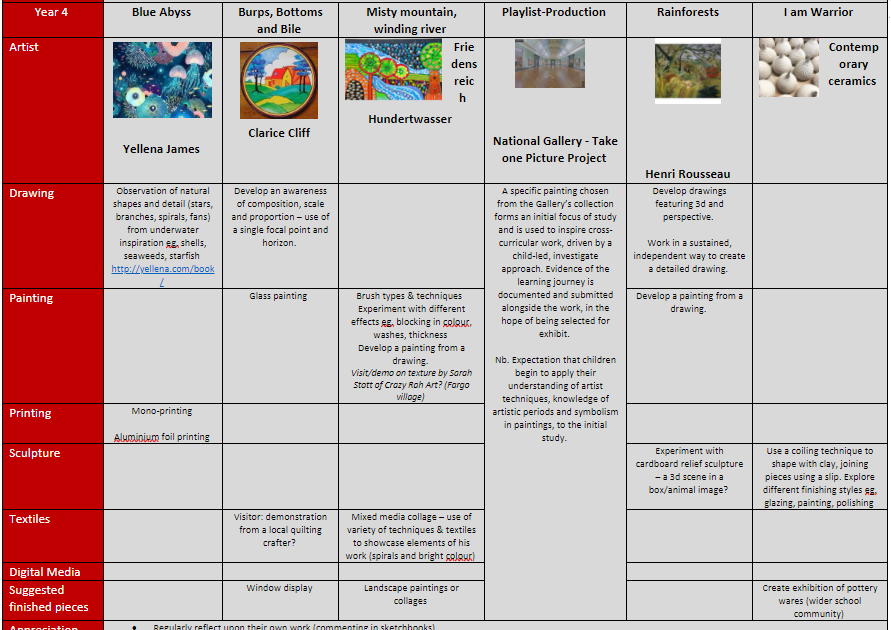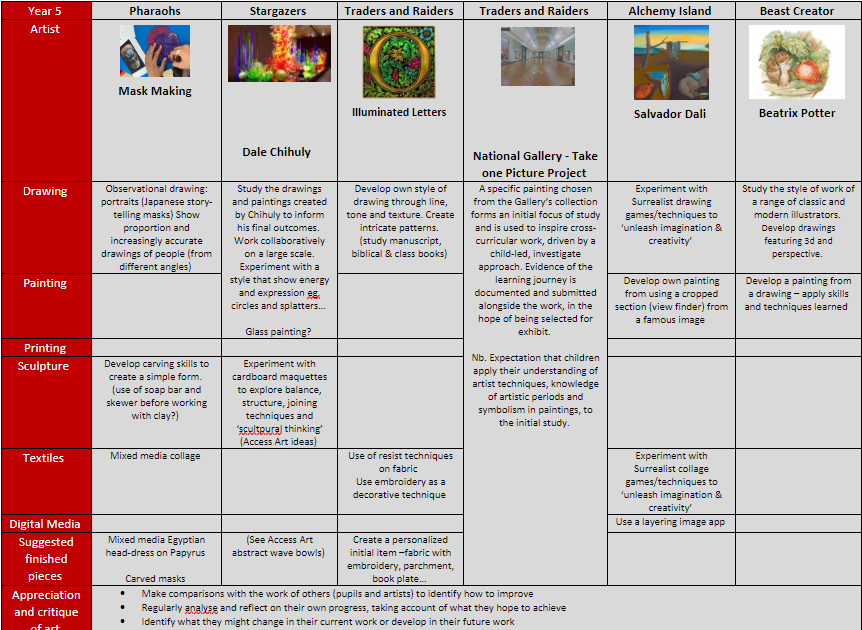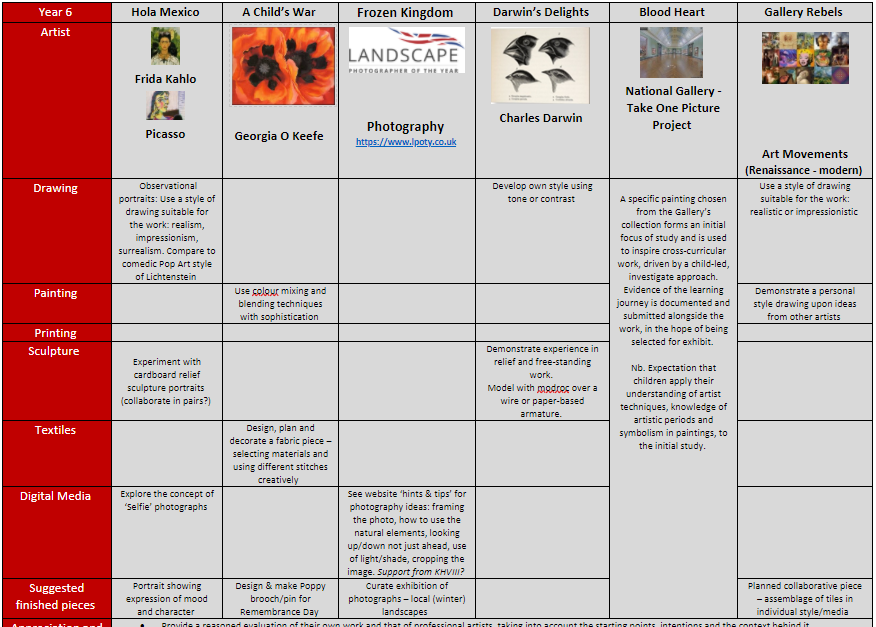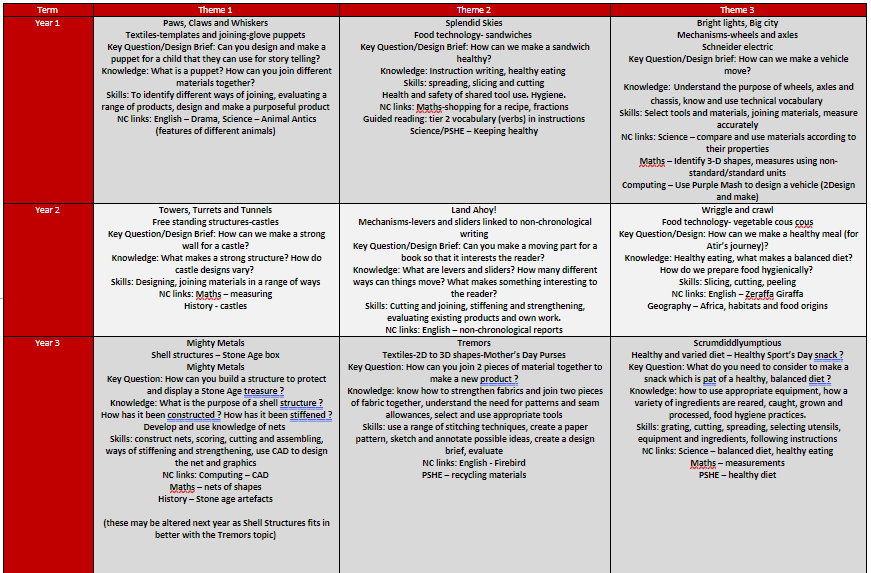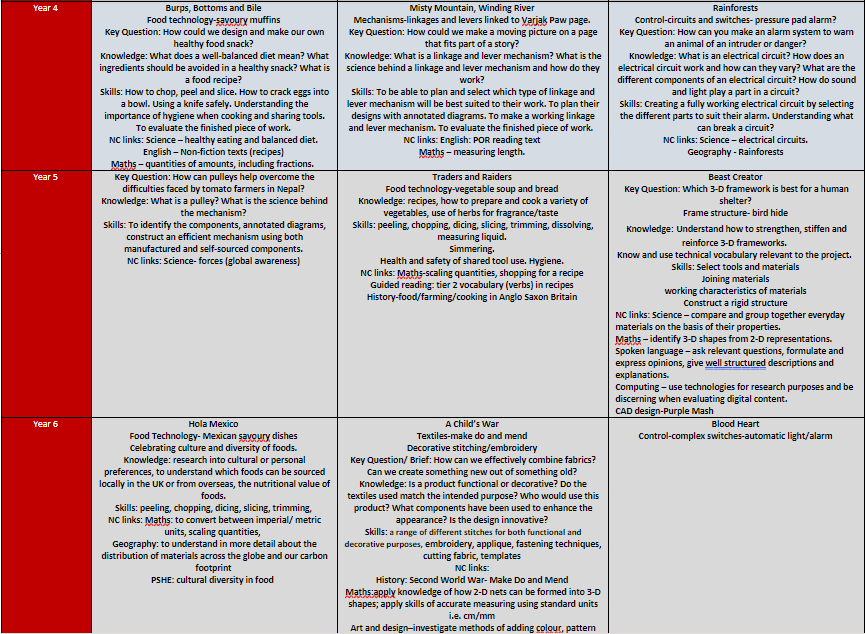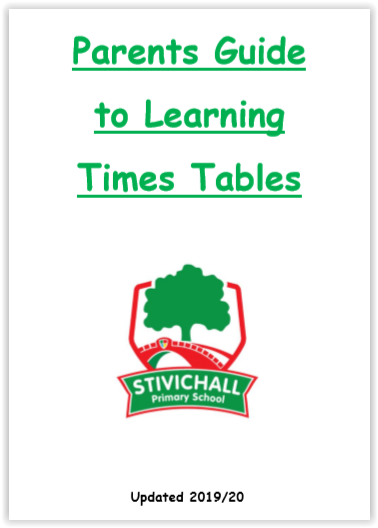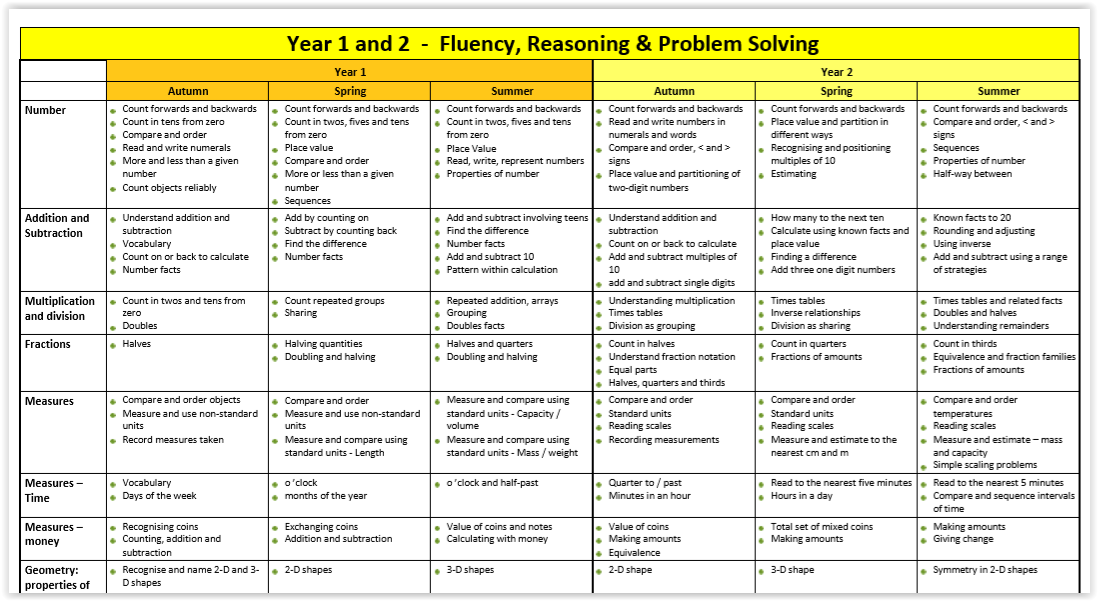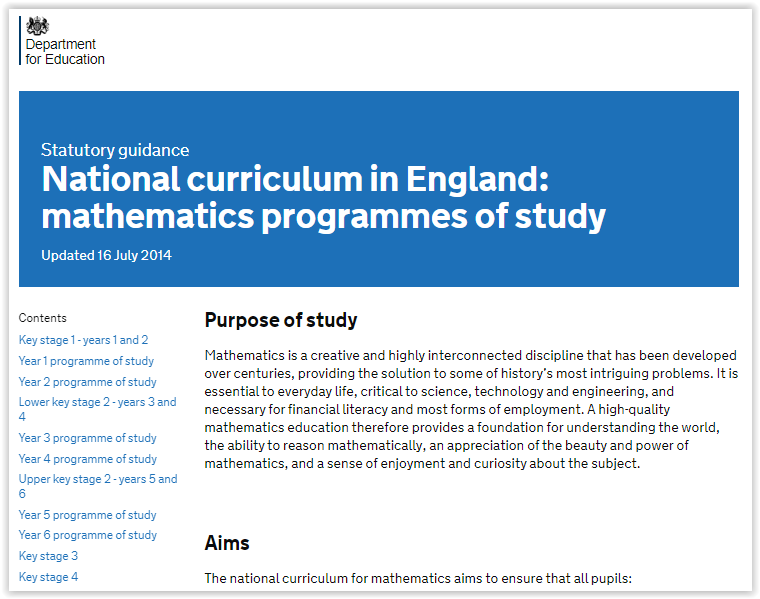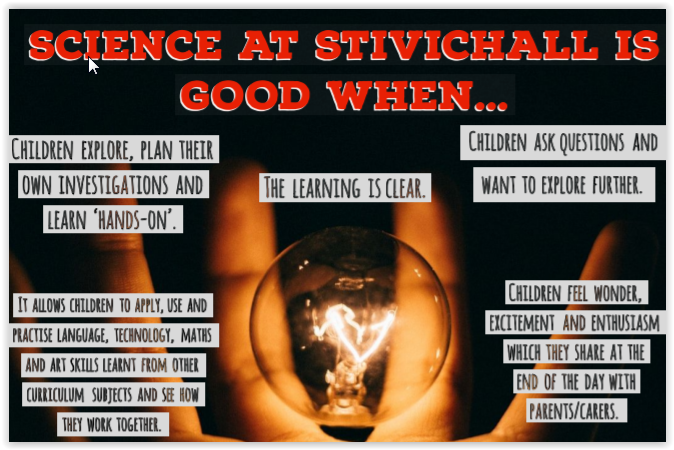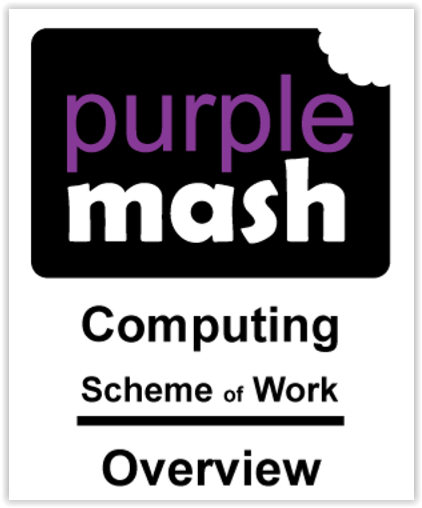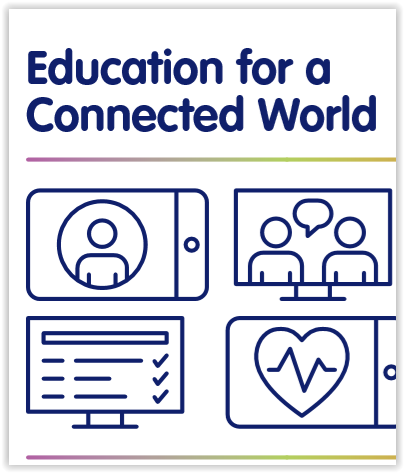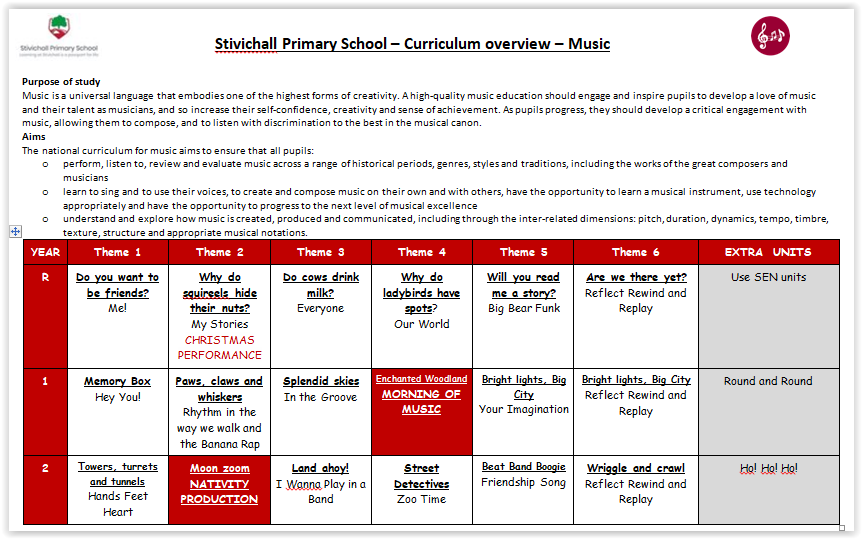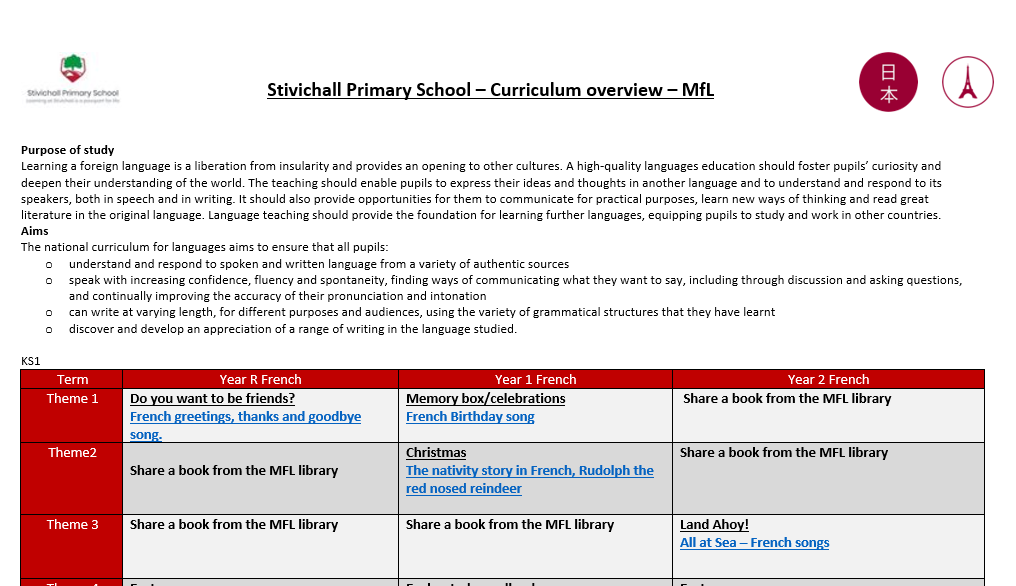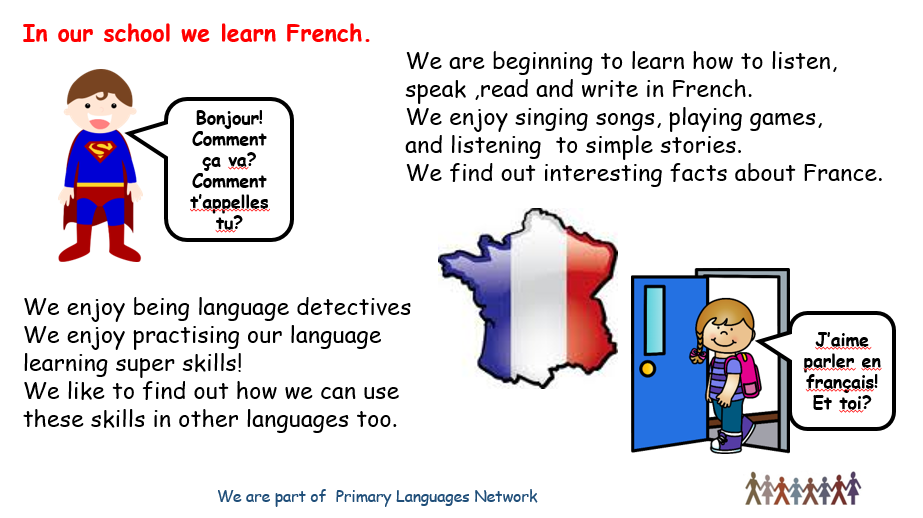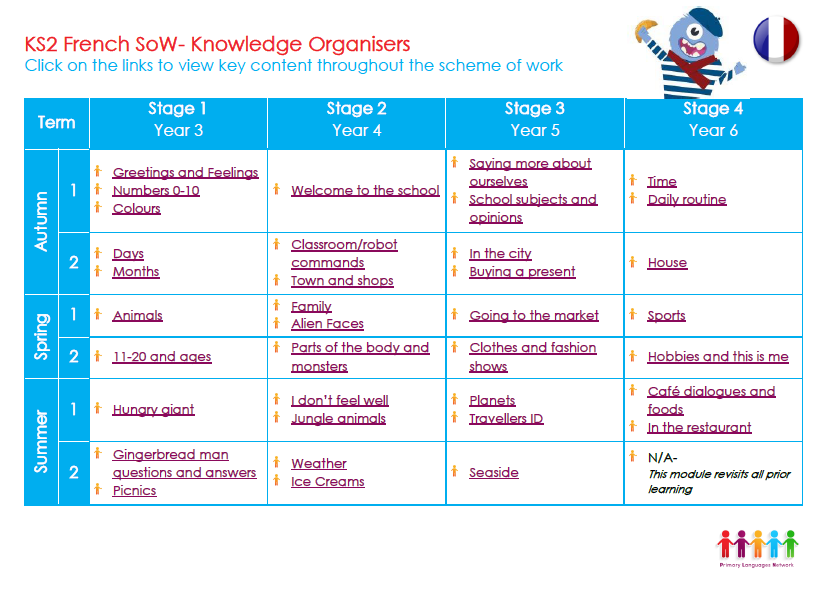Curriculum
Our curriculum is designed to ensure that all pupils have access to all that the National Curriculum offers and more. For details about the National Curriculum, please follow this link. The National Curriculum subjects have been organised into themes with consideration given to how learning within each subject is connected and sequenced (where curriculum content is not strengthened or supported by a thematic approach, it is taught in discrete lessons). Each year group has three projects that they use to map out their curriculum provision across the year. These projects are based on big ideas that connect subjects and link learning; developing understanding and allowing pupils to revisit knowledge in different contexts over time, thereby deepening their understanding. Using Cornerstones Maestro as a starting point, teachers and subject leaders are able to adapt and recreate curriculum projects to best meet the needs of our pupils and our changing world. Lessons within each subject are planned with purpose and rigour; providing a platform to recall and build on previous learning. Appropriate challenge develops the independence needed to make and learn from mistakes, building emotional and intellectual resilience.
Each curriculum project follows a sequence of Inspire-Immerse-Imitate- Innovate-Invent drawing on the best that has been thought and said, helping to develop a knowledge and appreciation of human creativity and achievement. Within each project, pupils are able to build cultural capital and celebrate diversity by learning about an inspirational figure from the past or present who has made a positive impact on society and encompasses the Stivichall Values. This could be an architect, an artist, an engineer, a writer, a humanitarian or a scientist. Our termly overviews for each year group can be downloaded below.
For details about how our curriculum complies with the duties outlined in the Equalities Act 2010 please follow this link to our Character Curriculum and British Values areas of the website.
We are proud of the provision that is put in place throughout our curriculum to meet the needs of children with Special Education Needs and Disabilities and how we make learning accessible to them. For further details about SEND please follow this link.
Further Curriculum Information
The Stivichall Pledge
Our Pledge
Many memorable experiences help bring learning to life at Stivichall. Pupils and staff have worked together to capture these in our Pledge of 100 things that our children have the chance to experience on their journey through school.
Our pledge of 100 experiences to enjoy offers all pupils the opportunity to challenge themselves and others; to grow and flourish; to build cultural capital that they can draw upon for their future learning; to create a passport for life. This is all part of our extensive 'Character Curriculum' - click here to find out more.
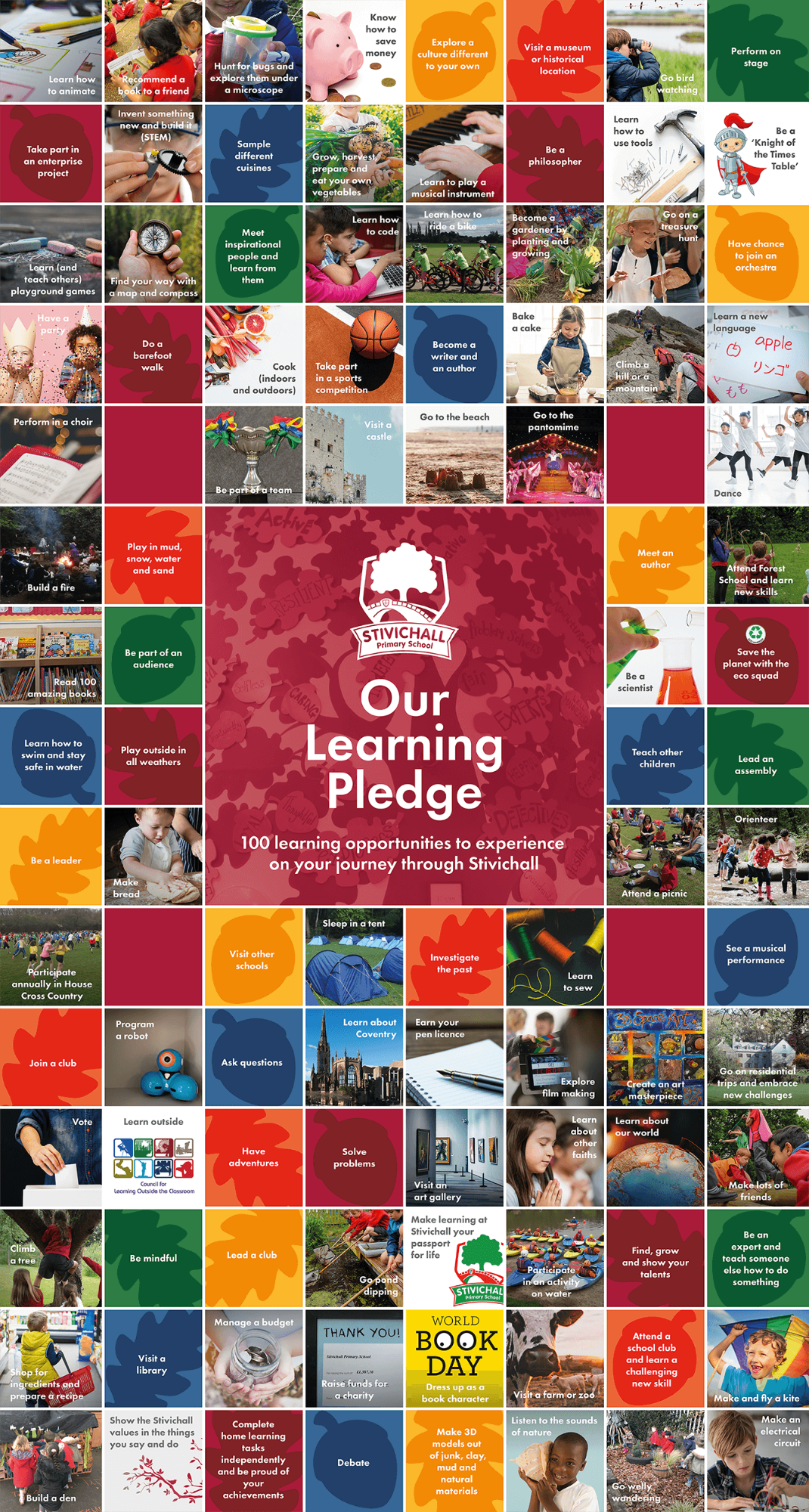
Our Wider Curriculum
Cities of Peace
As a Coventry school in such close proximity to the War Memorial Park, and as global citizens, we are proud to be a UNESCO associated school. This is in recognition of our work within The Cities of Peace Project. Peace and reconciliation thread through our curriculum and daily practice. Children are encouraged and supported in using restorative conversations to overcome conflicts and achieve positive resolutions.
Link for more information about the CIties of Peace Project: https://www.betweenthestones.com/schools-project
Philosophy for Children
Through Philosophy for Children (P4C) and within each curriculum subject, pupils are encouraged not to take information at face value, but to interrogate, consider, evaluate and question. Parents, as the primary educators of their children, are encouraged to engage in philosophical debate through our weekly sticky questions (click on the picture for a link to find out more).
Curriculum Overviews for each Year Group
Reception
Year 1
Year 2
Year 3
Year 4
Year 5
Year 6
Subject Specific Information
Art
Intent
At Stivichall Primary, we recognise that Art and Design stimulates creativity and imagination. It provides visual, tactile and sensory experiences and a special way of understanding and responding to the world. It enables children of all abilities to communicate what they see, feel and think through the use of colour, texture, form, pattern and different materials and processes. We believe that art is a vital part of education and has a significant and valuable role in the formal curriculum, as well as within the enrichment opportunities that we offer our pupils.
Art and design teaching at Stivichall instils an appreciation and enjoyment of the visual arts. It promotes the development of children’s critical abilities as well as an understanding of their own and others’ cultural heritage.
Art and design also promotes careful observation and an appreciation of the world around us. At Stivichall, children explore ideas and meaning through studying the work of a diverse range of artists and designers. Through learning about the roles and functions of art, as well as discussing and comparing personal responses, they can explore the impact it has on themselves; on contemporary life and on different periods and cultures.
The aims of teaching art and design in our school are:
To engage, inspire and challenge pupils, equipping them with the knowledge, skills and vocabulary to experiment, invent and create their own works of art, craft and design.
· For pupils to think increasingly critically and develop a rigorous understanding of art and design.
· For pupils to know how art and design both reflect and shape our history, and contribute to the culture, creativity and wealth of our nation.
· To become proficient in drawing, painting, sculpture and other art, craft and design techniques
· To confidently and knowledgeably evaluate and analyse work created by known artists, themselves and their peers, using the language of art, craft and design.
· To know about and appreciate great artists, craft makers and designers, and understand the historical and cultural development of their art forms.
Implementation
To ensure high standards of teaching and learning in art and design, we implement a curriculum that is progressive throughout the whole school, based upon the 2014 Primary National Curriculum in England, which provides a broad framework and outlines the knowledge and skills taught in each Key Stage. The emphasis on knowledge ensures that children understand the context of the artwork, as well as the inspirational artists in-focus. This enables links to other curriculum areas, including humanities subjects, with children
developing a considerable knowledge of individual artists as well as specific pieces of work and art movements. A similar focus on skills means that children are given opportunities to express their creative imagination, as well as practise and develop mastery in the key processes of art: drawing, painting, printing, textiles and sculpture.
Art is given high status in the curriculum and all pupils participate annually in the National Gallery’s Take One Picture project, which offers an opportunity to study and explore a chosen painting, and to complete a cross-curricular project focusing on a pupil-led approach.
As a school, we value partnerships with high quality arts providers and actively seek out opportunities to use educational visits, visitors and enrichment activities to promote engagement and interest, enhance pupil wellbeing, increase cultural capital and widen our pupils’ first-hand experience.
Impact
Our art and design curriculum is focused upon a diverse collection of interesting artists and is carefully structured to ensure breadth and balance, challenge and progression.
High-quality artwork and creative outcomes linked to the wider curriculum are evident throughout the school environment within collaborative installation pieces as well as classroom and corridor displays, which celebrate achievement, showcase talent and illustrate links and learning across the curriculum.
We recognise that the arts play a significant role in contributing positively to pupil mental health and well-being. At Stivichall, we encourage pupils to consider art as tool for mindfulness, and believe that our art curriculum nurtures child development through promoting creativity, independence, self-reflection.
Design Technology
Design And Technology At Stivichall
Intent
At Stivichall Primary School, we are fully committed to developing an exciting, stimulating and challenging STEAM (Science Technology Engineering Arts Maths) curriculum, that meaningfully integrates both Science and Arts based subjects, to prepare our pupils for the demands of the workplace in the 21st Century and the learning behaviours they will need for this. Our city has a long and established heritage of innovation and engineering; our curriculum aims to continue this legacy.
Design and Technology is an inspiring, rigorous and practical subject that encourages children to think and intervene creatively to solve problems both as individuals and as members of a team. At Stivichall, we encourage children to use their creativity and imagination to design and make products that solve real and relevant problems within a variety of contexts, considering their own and others’ needs, wants and values. We aim to link work to mathematics, science, engineering, computing and art. The children are given opportunities to reflect upon, and evaluate, past and present design technology, it’s uses and its effectiveness and are encouraged to become innovators and risk-takers.
Implementation Through a variety of creative and practical activities, we teach the knowledge, understanding and skills needed to engage in an iterative process of designing and making. The children work in a range of relevant contexts (for example home, school, leisure, culture, enterprise, industry and the wider environment). Wherever possible, learning in school is linked to relevant specialists in the workplace either through trips out or visitors into school.
Children are able to learn in our bespoke and dedicated learning space – the Imagineerium. This combines a workshop environment comprising of benches, vices and well-stocked lockable tool cabinets with a creative and engaging workspace to inspire children to bring their designs to life.
When designing and making, the children are taught to:
Design
• use research and develop design criteria to inform the design of innovative, functional,
appealing products that are fit for purpose, aimed at particular individuals or groups
• generate, develop, model and communicate their ideas through discussion, annotated sketches, cross-sectional diagrams, prototypes, pattern pieces and computer-aided design Make
• select from and use a wider range of tools and equipment to perform practical tasks (for example, cutting, shaping, joining and finishing) accurately
• select from and use a wider range of materials and components, including construction materials, textiles and ingredients, according to their functional properties and aesthetic qualities
Evaluate
• investigate and analyse a range of existing products
• evaluate their ideas and products against their own design criteria and consider the views of others to improve their work
• understand how key events and individuals in design and technology have helped shape the world Apply technical knowledge
• apply their understanding of how to strengthen, stiffen and reinforce more complex structures
• understand and use mechanical systems in their products
• understand and use electrical systems in their products
• apply their understanding of computing to program, monitor and control their products
Key skills and knowledge have been mapped across the school to ensure consolidation and progression across each key stage. This also ensures that there is a context for the children’s work in Design and Technology; they learn about real life problems and the purpose of specific examples, as well as developing their skills throughout the programme of study. Design and technology lessons are frequently taught as a block so that children’s learning is focused throughout each unit of work.
Impact
We ensure the children
• develop the creative, technical and practical expertise needed to perform everyday tasks confidently and to participate successfully in an increasingly technological world
• build and apply a repertoire of knowledge, understanding and skills in order to design and make high-quality prototypes and products for a wide range of users and critique, evaluate and test their ideas and products and the work of others
• understand and apply the principles of nutrition and learn how to cook. Children will design and make a range of products.
A good quality finish is actively encouraged and all activities are made appropriate to the age and ability of the individual child.
Children learn how to take risks, becoming resourceful, innovative, enterprising and capable citizens. Through the evaluation of past and present design and technology, they develop a critical understanding of its impact on daily life and the wider world. High-quality design and technology education offers an essential contribution to the innovation, creativity, culture and well-being of this country.
English
‘To learn to read is to light a fire; every syllable that is spelled out is a spark.’ Victor Hugo
At Stivichall, we believe that reading is the gateway to learning. Our English curriculum is launched from high quality texts, allowing children to immerse themselves in rich vocabulary, stories and provide them with the opportunity to enrich their curriculum knowledge through reading. The Power of Reading is an intrinsic part of our curriculum, providing teachers and pupils with high quality texts, through which they can explore the world, ask questions, seek answers, be inspired and learn to love reading.
As well as engaging our children as readers, we aim to develop them as authors. Writing opportunities are carefully planned across the curriculum, with children required to write for a variety of purposes and audiences. Through a clear pathway of progression as they advance through school, children are provided with the knowledge and skills they need to develop their own independence and to identify their own areas for development.
Each curriculum theme has a text to launch from and, where appropriate, a Talk for Writing stimulus is also used to build a bank of writing structures that children can draw upon for their own writing. Immersion in some of the best writing available to us provides children with a toolkit from which they can innovate. Their knowledge is deepened over time and, with a widening skill set, they can imagine and invent their own writing, expressing their thoughts and ideas.
We believe that the English curriculum is an essential part of the whole development of all children and aim to give the children the tools they need to be successful.
Additionally, we organise many inspiring whole school events where children can use their English skills in a range of contexts. For example, on National Poetry Day, children may be visited by a poet and carry out poetry-based workshops where they will read, write and recite poetry. This may be followed by a celebration of their work as they share what they have learnt with different classes while practising their speaking and listening skills. When children can use and apply their English skills in a real situation, they are more engaged, excited and motivated to learn and develop.
Early Reading
-
In reception there is a ‘language rich’ environment.
-
Well-planned indoor and outdoor play experiences are used to develop children’s language skills. Play experiences are used to provide opportunities for developing imaginative play, storytelling, experimenting, problem solving and interacting with other children.
-
Adults use every opportunity with children to interact, share a focus, to talk and to take turns.
-
Staff read aloud high quality stories, poems, rhymes and non-fiction texts that develop children’s vocabulary, language comprehension and a love of reading.
-
Children have the opportunity throughout the day to access the reading area, where there is a wide range of books they are able to choose from freely.
-
Systematic, synthetic phonics is taught daily in Reception and KS1. We use the DFE approved scheme ‘Floppy's Phonics.’
-
There are clear term by term expectations for which phases should be taught, starting in reception.
-
Assessment of pupil’s phonic progress is frequent and used to identify any children who are falling behind, so that additional support can be provided.
-
Children are able to practise reading both at school and at home, using books that have the sound they know in order to develop fluency. The sequence of reading bands shows progression in phonics knowledge.
-
Extra reading and phonic support is provided daily for the children who are not making expected progress.
-
Parent workshops are delivered at the start of the academic year, so all parents have the knowledge and skills needed to support their child’s reading at home.
-
Children take part in small shared reading sessions where they are all able to access and discuss a high-quality picture book. They are taught to handle books with care, look at the words and pictures in detail.
Click here to see our Overview and Progression of Phonics Phases document & Phonics at Stivichall Learning Path.
The English Curriculum
-
English skills are taught daily. Writing opportunities are found across the curriculum ensuring that pupils are able to write in a variety of contexts inspired by a range of stimuli.
-
Reading is taught daily. Language acquisition is a daily activity: it may be adventurous vocabulary or subject specific vocabulary needed for children to articulate their learning effectively.
-
Building on their cultural capital, children regularly take their learning outside the classroom onto the school grounds or on trips as part of Learning Outside the Classroom (LOtC)
-
Children in EYFS learn English skills through directed play and small group work in a literacy rich environment inside and outside the classroom;
-
Our curriculum is launched through high quality texts from the ‘Power of Reading’ and writing is further supported through Pie Corbett’s ‘Talk for Writing’;
-
Carefully planned writing opportunities are planned across the curriculum to ensure progression of skills and texts for children across school, whilst also allowing for a wide variety of writing opportunities;
-
Children are given frequent opportunities to participate in drama activities, build on ideas through discussion and rehearse before writing;
-
Vocabulary is an important aspect of the English curriculum, with time taken to gather adventurous vocabulary in both writing and reading lessons. The texts chosen as stimuli allow children to be immersed in rich vocabulary;
-
Spellings are taught through the Jane Considine 'Spelling book', where focused investigation and spelling activities are based on strong phonic foundations. Children are set spelling investigations and are invited to explore new spellings through research and exploration across the whole curriculum and record these within their class spelling board. This approach focuses on explicit teaching, exploratory investigation and the revision of new rules with engaging 'short burst' activities.
-
A love of reading is fostered within children throughout their school life as reading is at the heart of the curriculum at Stivichall;
-
Children are given time to share books with each other and their teachers. Reading buddies is arranged across the school, where older children have the opportunity to read to and share books with the younger children. Book recommendations are shared with classes by teachers and children every other week.
Support at home
Regular reading at home is crucial from reception to year 6. It is important that parents listen to children read and ask them about texts in order to develop comprehension skills. Sharing books is just as important as listening to a child read; this promotes a love of reading and shows the people around them as readers too. Alongside their school reading book, children should be encouraged to read other texts such as a library book, a magazine or a book on the kindle. Any reading at home should be recorded in the child’s reading record. We thank you for your support in this.
Linked Home Learning provides children and parents with opportunities for independent learning outside of school; choices that require the children to use the English skills that they have learnt in class. This practice of using and applying English skills, including outside trips or visits, is key to embedding and consolidating learning. Whilst completing these projects, as with any written homework, children should practise their handwriting skills.
Developing ‘fluency’ in reading and writing is one of our key drivers that we focus on in school. Children will learn spelling skills in class and practise these in a variety of ways. Regular practice of spellings will help your child to become faster and more accurate when writing – helping them in every area of the curriculum. Again, we thank you for your support in this.
Please do contact your child’s class teacher should you require any further information, or have any questions about how you can help support your child.
Mathematics
Mathematics at Stivichall - Our Vision
Learning at Stivichall is a passport for life. Our aim is to nurture and develop our children to be confident to use and apply their written and mental maths skills, inside and outside the classroom, thus developing their confidence in and enjoyment of the subject.
At Stivichall we approach maths learning with a ‘Growth Mindset’, where with the right practice, focus and guidance, everyone can learn maths and enjoy success in the subject.
About our Curriculum
Stivichall Primary School's maths curriculum is all the planned activities that we organise in order to promote learning, and personal growth and development inside and outside of the classroom within maths. We offer children an exciting, broad, balanced and engaging curriculum which takes account of the 2014 National Curriculum requirements and recognises the individual developmental needs of our children.
Maths is typically learnt in discrete lessons, but also, wherever possible, we make meaningful cross-curricular links so that pupils can see how maths knowledge and skills can be used in wider contexts – particularly the STEM (Science, Technology, Engineering and Maths) subjects. When children can use and apply their maths skills in a real situation, they are more engaged, excited and motivated to learn and develop as mathematicians. For example, in planning, organising and running the ‘Enterprise Zone’ in the summer fayre, year 5 pupils use and apply their number and money skills by running a stall. They learn that calculating costs and profit is key to a successful enterprise/business and they enjoy having an impact by raising money for community projects.
At Stivichall we strive towards pupils having a 'Mastery' of the mathematics for their year group. We believe that in nurturing and developing a love of mathematics and a belief that everyone can ‘do’ maths, all children can achieve in the subject. Learning concepts within maths ‘topics’ is carefully planned so that prior learning is built upon and embedded, giving a focus on developing breadth and depth of understanding. In line with our school motto, we are keen for maths learning to have real life contexts whenever possible to enable children to make links and see the importance of it for them now and into their future. Appropriate support is giving to pupils who need it, to give them the best chances to continue learning towards year group objectives.
When learning new concepts, teaching strategies follow a Concrete, Pictorial, Abstract (CPA) approach. Using practical resources and visual representations supports the development of understanding that is needed before moving to more abstract calculation methods. Pupils are encouraged to ‘reason’ through their mathematical thinking, which supports them in applying their skills to solving problems. Examples of the vocabulary to use along with suggested ‘structures’ to the talk (e.g. ‘Think aloud and coach’) are given to pupils to support their verbal reasoning. At Stivichall we follow a three-part-model, firstly to ensure that fluency is embedded, but also to increase exposure to varied concepts and reasoning and problem-solving tasks. The model is:
1. Fluency (exposure to visual representation and often calculations in standard form)
2. Variation (the task is presented in a non-standard/more complex form
3. Reasoning and problem-solving (opportunities to explain and justify their answers and attempt tasks in a contextualised form)
Our children are exposed to this three-part-model when learning a new skill and objective.
To develop pupils’ fluency in written calculations and mental methods, each class completes a brief ‘5-a-day’ session (often during registration) giving them opportunity to practise key skills. Also, the Stivichall Knights of the Times Tables initiative (procedure and parents guide documents below) gives structure to pupils learning their times tables facts, appropriate to each year group, in an enjoyable and competitive way. The expectations of the Knights ‘quizzes’ are high and enable the fluent application of facts to the wide range of multiplication, division, fraction and percentage work that children will encounter in KS2 and beyond. We are proud of the quality of this home-grown initiative that has been shared wider within the city and continues to impact positively on children’s life chances outside as well as inside our school community.
Further key points:
- Children throughout KS1 and KS2 have a daily maths lesson
- Children will regularly take their learning outside the classroom onto the school grounds as part of Learning Outside the Classroom (LOtC)
- Children in Reception classes learn number skills through directed play and small group work in a number rich environment inside and outside the classroom
- Our aim is to ensure that children become mathematicians and think mathematically, rather than just ‘doing’ maths
- It is important that children develop mathematical skills through lots of practical experience, especially when they are younger
- It is also important that children are given plenty of opportunities to apply these skills to a wide range of situations.
Support at home
Please do ask your child what they have learnt in maths that day. They should be able to explain what they did and how they did it – ‘Reasoning’ is one of the key drivers in our teaching and learning in maths. We move through a 3 part process in school where staff share new skills and objectives in the 'fluency' stage, often where calculations and maths concepts are presented in their most standard and simplest form before moving on to 'variation' where the concept is presented in a non-standard way. The final stage of our 3 part model is where children attend to reasoning and problem solving and are encouraged to reason, explain and justify.
As part of our Homework Policy, class teachers will set activities for children to complete on the Mathletics system and via Learning by Questions (LBQ). This gives them opportunities for independent learning outside of school that require the use of maths skills that children have learnt in class. This practice of using and applying maths skills to practical situations, including outside trips or visits is key to embedding and consolidating learning. Please do enjoy talking about the real life maths you encounter in home life – for example in adding prices when shopping, telling the time on analogue clocks or measuring in home cooking. Younger children may benefit from further practice at home of writing digits correctly (forming the numbers the right way around) – at school, children in Reception do this with pencils, crayons, paint, in sand and sometimes in mud outside! We thank you for your support in any practice you can help give your child at home.
Developing ‘Fluency’ in number work is one of our key drivers that we focus on in school. Children will learn mental methods in class teaching and practise these in a variety of ways. Regular practice of number facts, such as the ‘times tables’ and ‘number bonds’ (e.g. 34 + 66 = 100) will help your child to become faster and faster at mental maths – helping them in every area of their maths and giving them confidence that will stay with them for the rest of their lives. Again, we thank you for your support in this.
Please do contact your child’s class teacher should you require any further information, or have any questions about how you can help support your child.
For an overview of our maths curriculum learning in each year group please click on the picture below. The National Curriculum Programmes of Study (clicking on the picture links to the DfE website) give further details of objectives covered in each year group and onwards into KS3.
Science
Science at Stivichall – Our Vision
Learning at Stivichall is a passport for life. Our aim is to nurture and develop our children’s interest and curiosity in the world around them, thus developing their confidence in and enjoyment of the science.
This year through pupil and staff voice, we have written Stivichall's Science Principles. These are principles that we want to embed through our science teaching and learning. We want the children at Stivichall to acknowledge and understand that science is all around us and be engaged and inspired by the wonders of science in and out of the classroom.
About our Curriculum
Stivichall Primary School's curriculum is all the planned activities that we organise in order to promote learning, and personal growth and development inside and outside of the classroom. We offer children an exciting, broad, balanced, differentiated and engaging curriculum which takes account of National Curriculum requirements and recognises the individual developmental needs of our children. At Stivichall, we have developed age related expectations and programmes of study for Years 1 to 6 in line with increased expectations for all, to comply with changes that were made to the National Curriculum in 2014.
The Science Curriculum
Key points:
- Children throughout KS1 and KS2 have weekly science lessons.
- Our aim is to develop children’s excitement and curiosity in the world around them.
- Children will regularly take their learning outside the classroom onto the school grounds or on trips as part of Learning Outside the Classroom (LOtC)
- Children in Reception classes learn scientific skills through directed play and small group work both inside and outside the classroom.
- It is important that children understand how science can be used to explain why things will behave, as science plays a vital role in our world and lives today.
- Working scientifically is a key part of our curriculum and it is embedded within our themes. It focuses on the key features of enquiry, which includes observing over time, pattern seeking, identifying, classifying and grouping, fait testing and researching.
- It is also important that children are given opportunities to apply their literacy and mathematical skills during science lessons.
As part of our Theme Based Curriculum, we teach the skills of Biology, Chemistry and Physics through a wide range of practical contexts, including outside. These practical and investigative activities enable children to develop their scientific knowledge, conceptual understanding and skills through first hand experiences, allowing children to develop as scientists. We are extremely luck with our outdoor space; field, dell, pond and forest school area which provide opportunities to develop the children’s excitement in the natural world around them. For example, Year 2 children explore habitats and life cycles by investigating the wildlife around our school pond. Our whole school science week also aims to promote the importance of science in our everyday lives.
Support at home
Please ask your child what they have been learning about in their science lessons. The children are taught scientific language from KS1 and they are encouraged to use this language to talk about what they have found out and communicate their ideas. Our year group curriculum overviews, which can be found on our school website, will also provide you with information regarding themes and topics.
Linked Projects provide children and parents with opportunities for independent learning outside of school and in them are often choices that require the children to use the science skills that they have learnt in class. This practice of using and applying science skills to practical situations, including outside trips or visits is key to embedding and consolidating learning.
Should you require any further information or have any questions about how you can help support your child, please contact your child’s class teacher.
Computing
Stivichall Primary School Computing Overview
At Stivichall Primary School, we strongly believe that a high-quality computing education equips our pupils to use computational thinking and creativity to understand the changing world in which we live. As a school, we deliver the Computing National Curriculum as part of our Year group themes (where possible), and computer science sessions discreetly in order to deliver our coding sessions.
We believe this provides a Computing curriculum that ensures the pupils have the best opportunities to achieve. We have developed a curriculum that we believe meets the needs of all of our pupils as well as ensuring continuity and equality in our computing provision.
The core of computing is computer science, in which pupils are taught the principles of information and computation, how digital systems work and how to put this knowledge to use through programming. Building on this knowledge and understanding, pupils are equipped to use information technology to create programs, systems and a range of content.
Computing also ensures that pupils become digitally literate – able to use, and express themselves and develop their ideas through, information and communication technology – at a level suitable for the future workplace and as active participants in a digital world.
Aims
We follow the national curriculum for computing aims to ensure that all pupils:
- can understand and apply the fundamental principles and concepts of computer science, including abstraction, logic, algorithms and data representation
- can analyse problems in computational terms, and have repeated practical experience of writing computer programs in order to solve such problems
- evaluate and apply information technology, including new or unfamiliar technologies, analytically to solve problems
- are responsible, competent, confident and creative users of information and communication technology
Key Stage 1
Pupils will be taught to:
- understand what algorithms are, how they are implemented as programs on digital devices, and that programs execute by following precise and unambiguous instructions
- create and debug simple programs
- use logical reasoning to predict the behaviour of simple programs
- use technology purposefully to create, organise, store, manipulate and retrieve digital content
- recognise common uses of information technology beyond school
- use technology safely and respectfully, keeping personal information private; identify where to go for help and support when they have concerns about content or contact on the internet or other online technologies
Key Stage 2
Pupils will be taught to:
- design, write and debug programs that accomplish specific goals, including controlling or simulating physical systems; solve problems by decomposing them into smaller parts
- use sequence, selection, and repetition in programs; work with variables and various forms of input and output
- use logical reasoning to explain how some simple algorithms work and to detect and correct errors in algorithms and programs
- understand computer networks, including the internet; how they can provide multiple services, such as the World Wide Web, and the opportunities they offer for communication and collaboration
- use search technologies effectively, appreciate how results are selected and ranked, and be discerning in evaluating digital content
- select, use and combine a variety of software (including internet services) on a range of digital devices to design and create a range of programs, systems and content that accomplish given goals, including collecting, analysing, evaluating and presenting data and information
- use technology safely, respectfully and responsibly; recognise acceptable/unacceptable behaviour; identify a range of ways to report concerns about content and contact
As a school, we are fully committed to keeping our children safe online. For more information on our online safety work, please visit the Online Safety area found in the ‘Our Learning’ section of our website.
In order to deliver a comprehensive and immersive computing curriculum, we draw on many resources. Two of the main ones we use are: Education For A Connected World and Purple Mash. Overviews for these documents and resources can be found by clicking on the images below:
Physical Education
Our Vision
At Stivichall, we aim to provide our children with high quality physical education that offers a broad and balanced range of sports to develop skills and maintain health and fitness, at all levels. Children are offered opportunities to participate in competitions and encouraged to pursue their own talents and interests in sports. We aspire for children to live a sustained healthy and active lifestyle.
Physical Education is supported by the government sports premium funding. This funding is used to enhance the PE curriculum and is spent on the following 5 key indicators:
- Engagement of all pupils in regular physical activity - kick starting healthy active lifestyles.
- The profile of PE and sport being raised across the school as a tool for whole school improvement.
- Increased confidence, knowledge and skills of all staff in teaching PE and sport.
- Broader experience of a range of sports and activities offered to all pupils.
- Increased participation in competitive sport.
The impact of what this funding is spent on can be found in the expenditure report and differs each year depending on actions and targets. Please click on the link below to see this year's PE overview and most recent expenditure report.
PE and Sport Premium Information
The delivery of PE
Reception - The early years environment and approach encourages active learning on a daily basis. When your child is in reception, they will receive an additional stand-alone one hour PE lesson. This is not statutory, but as a school we feel it is important.
KS1 and KS2 - In the rest of the school, every class will receive two hours of PE a week. Each lesson will be different, changing every half term in order to offer a broad and balanced range of activities in line with the National curriculum. This is mapped out carefully in the curriculum overview. One lesson a week will be taught from the Real PE scheme. These lessons have a holistic approach focussing on skills in 1 of the following areas: creative, personal, health and fitness, social, cognitive and physical.
Swimming - Currently, our children swim when they are in year 3. In year 6, we offer top up sessions (funded by the sports premium) for those children that have not met the 25m swimming standard and are unable to use a range of strokes. We feel it is a vital life saving skill, we like to ensure we have given all children the opportunity to achieve this before they leave us in year 6.
Broadening the curriculum - Some examples of how we broaden the curriculum, with the support of the PE sport premium funding, is ‘Chance to shine’ cricket for year 4 and 5, tag rugby mental health for year 5, purchasing equipment to teach new exciting sports like ‘Kinball’. These often link with festivals and competitions and support teachers CPD, such as ‘Specialising sport- Indoor athletics’ with year 6 this year. Please click on the following for our curriculum overview:
Competition - At level 1 competition, we encourage all class teachers to incorporate competition within their lessons and at the end of a half term unit in house teams. Within units, such as athletics and magnificent 7, children are able to be in competition with themselves as they repeat and build on skills and techniques to improve and achieve their personal best scores. As a whole school, we offer the opportunity for all children in KS2 to take part in a house cross country competition and all children take part in sports day in the Summer term. We take part in a wide range of competitions at level 2, such as: the football association in which we have a boy and girls team; cricket festivals through chance2shine; Cross Country; the netball league; and others through School Games. School Games offers a range of competitive events including: gymnastics, hockey, boccia, biathlons, rounders, tennis, dodgeball, endball, athletics and rowing to name a few. These are available throughout the year and some include KS1, with most being for KS2 children.
Health and wellbeing- Within PE lessons, teachers discuss the impact exercise has on the body and the physical changes that we observe. The importance of exercising and having a healthy lifestyle is referenced throughout the curriculum in assemblies, Science and PSHE lessons. We encourage active lunchtimes.
In Key stage 1
Pupils should develop fundamental movement skills, become increasingly competent and confident and access a broad range of opportunities to extend their agility, balance and coordination, individually and with others. They should be able to engage in competitive (both against self and against others) and co-operative physical activities, in a range of increasingly challenging situations.
Pupils should be taught to:
- Master basic movements including running, jumping, throwing and catching, as well as developing balance, agility and co-ordination, and begin to apply these in a range of activities.
- Participate in team games, developing simple tactics for attacking and defending.
- Perform dances using simple movement patterns.
In Key stage 2
Pupils should continue to apply and develop a broader range of skills, learning how to use them in different ways and to link them to make actions and sequences of movement. They should enjoy communicating, collaborating and competing with each other. They should develop an understanding of how to improve in different physical activities and sports and learn how to evaluate and recognise their own success.
Pupils should be taught to:
- Use running, jumping, throwing and catching in isolation and in combination.
- Play competitive games, modified where appropriate [for example, badminton, basketball, cricket, football, hockey, netball, rounders and tennis], and apply basic principles suitable for attacking and defending.
- Develop flexibility, strength, technique, control and balance [for example, through athletics and gymnastics].
- Perform dances using a range of movement patterns.
- Take part in outdoor and adventurous activity challenges both individually and within a team.
- Compare their performances with previous ones and demonstrate improvement to achieve their personal best.
Impact
As a result of good teaching, a well planned curriculum, along with a wide range of opportunities and experiences on offer at Stivichall, children are increasingly able to make good progress with their physical education. Immediate feedback in lessons, peer feedback including the use of technology to review performance, personal best cards (athletics and magnificent 7) and competition all support children to identify their progress and develop their skills further. End of half term teacher assessments guide teachers to identify which children need further support in PE and to consider levels of differentiation for lower and higher able children. Our gifted and talents list demonstrates a wealth of children across the school who are excelling in sport. Children are inspired at Stivichall through a variety of experiences including specialist visiting coaches running curriculum sessions, lunchtime coaching and clubs and visiting athletes. Teachers continuing professional development is ongoing and built upon each year, many are enthusiastic about teaching PE and our uniform demonstrates we value the subject.
We also have a group of confident, eager PE leader pupils who are keen to support the development of PE for our school and they are growing in confidence in this role. The PE leaders are having a positive impact on supporting KS1 children in having active, fun playtimes. PE offers an excellent opportunity for our Stivichall values and learning behaviours to be developed, which in turn can be used as a tool to support whole school improvement -active bodies create active minds.
History
Aims of History
With a wealth of history on our doorstep, Stivichall Primary School takes full advantage of our historical city and strives to educate the children on the city’s past and its impact on the present. We promote respect and appreciation of our local and city-wide history through lesson study, research, trips and visitors. Children are given the opportunity to study a variety of primary and secondary sources, make predictions, build their historical knowledge and develop key history skills. We offer quality teaching that equips pupils to work and think like historians by asking perceptive questions, think critically, weigh evidence, sift arguments, and develop perspective and judgement. We aim to help pupils to understand the complexity of people’s lives, the process of change, the diversity of societies and relationships between different groups, as well as their own identity and the challenges of their time. At Stivichall, we explore and examine local and British history and the history of civilisations across the world. Children are encouraged to think about the past, not only in how and why events occurred, but their impact on the present and future.
The Delivery of History
History at our school is taught through a themed and topic-based curriculum. Learning objectives draw from knowledge and skills included in the National Curriculum. Cross curricular links are identified and planned thoughtfully. Lessons provide opportunities to use and apply computing skills with the careful delivery of History also through Guided Reading, Drama, English , Art and a variety of exciting, creative activities. Out of classroom learning is regular and a number of varied and engaging ‘beyond the classroom’ learning experiences are embedded in practice. In lessons, an enquiry-led approach to learning, through ‘Big questions’ leads children to developing their own questions to investigate. Alongside, our Philosophy for Children, these ‘Big questions’ provide a forum to debate and develop the children’s self-confidence, to think critically and to offer theories.
Impact of History at Stivichall
History outcomes in Theme and English books provide evidence a broad and balanced history curriculum. They demonstrate the children’s gaining of key historical knowledge. Children reflect on the previous lesson’s work with opportunities to edit and correct. Children also reflect on what they have learned compared with their starting points at the end of topics. Through thinking critically and analytically and developing questioning which helps pupils gain a comprehensible knowledge and understanding of Britain’s past and the wider world, they are very keen to know more about the past. Stivichall children are passionate about History. They tell us they love their History learning. From this, Stivichall pupils ask perceptive questions, think critically and have well developed views and opinions. Regular historical visits and projects provide further relevant and contextual learning. The engagement of members from the wider community provide positive role models for children to learn from and meaningful interactions to consolidate their learning, and relate History in a human context.
Geography
Aims of Geography
Here, at Stivichall Primary School, we aim to provide a Geography education that encourages and inspires our children to be curious about the planet, develop their interest in the world around them and ask questions to deepen their understanding of people, places and the environment. We promote respect and understanding of our wonderful local area through our exploration and study of it, providing extensive opportunities for learning outside the classroom. Our Geography curriculum transfers skills across other curriculum areas and further promotes the children’s spiritual, moral, social and cultural understanding. It is our belief, that pupils should leave Stivichall Primary School not only fully equipped with geographical skills, such as map reading, but also as globally minded children.
The delivery of Geography
Geography at Stivichall is taught through a themed and topic-based curriculum. Cross curricular opportunities have been identified and there are strong links between English, Maths and Science as well as the creative arts subjects. These lessons are carefully planned and delivered. Key Geography knowledge and skills have been identified across themes to ensure progression across topics in each year group across the school. As a specific school drive, the children are also presented with a philosophical question which offers greater depth and perspectives to their answering of questions, the asking of their own questions and their understanding of the role that aspects of Geography have to play. Inspirational figures are also studied, and the children research these Geographers through topic related work. In addition to the school grounds, key geographical skills in map and field work also take place in the local area and during school residential trips where children develop an appreciation of their local area and further afield, within a wider geographical context.
Impact of Geography
Geography outcomes are evidenced in Theme, English, Maths and Science books. Evidence of a broad and balanced geography curriculum demonstrate the children’s learning of key knowledge. At the start of lessons, children review their previous learning and are given time to reflect. Throughout lessons, children engage in partner talk and are offered questions which require reasoning. Their use of geographical vocabulary, concepts and understanding come to the fore during these activities. Children will also be able to learn about careers related to Geography from members of local and wider community with specialist skills and knowledge. This ensures that they are aware of the world of work and the further steps they might take in their on-going education.
Music
Purpose of study
Music is a universal language that embodies one of the highest forms of creativity. A high-quality music education should engage and inspire pupils to develop a love of music and their talent as musicians, and so increase their self-confidence, creativity and sense of achievement. As pupils progress, they should develop a critical engagement with music, allowing them to compose, and to listen with discrimination to the best in the musical canon.
Aims
The national curriculum for music aims to ensure that all pupils:
- perform, listen to, review and evaluate music across a range of historical periods, genres, styles and traditions, including the works of the great composers and musicians
- learn to sing and to use their voices, to create and compose music on their own and with others, have the opportunity to learn a musical instrument, use technology appropriately and have the opportunity to progress to the next level of musical excellence
- understand and explore how music is created, produced and communicated, including through the inter-related dimensions: pitch, duration, dynamics, tempo, timbre, texture, structure and appropriate musical notations.
Please click on the picture below to open our curriculum overview for music.
In Key stage 1, pupils will be taught to:
- use their voices expressively and creatively by singing songs and speaking chants and rhymes
- play tuned and untuned instruments musically
- listen with concentration and understanding to a range of high-quality live and recorded music
- experiment with, create, select and combine sounds using the inter-related dimensions of music.
In Key stage 2, pupils will be taught to:
- to sing and play musically with increasing confidence and control. They should develop an understanding of musical composition, organising and manipulating ideas within musical structures and reproducing sounds from aural memory
- play and perform in solo and ensemble contexts, using their voices and playing musical instruments with increasing accuracy, fluency, control and expression
- improvise and compose music for a range of purposes using the inter-related dimensions of music
- listen with attention to detail and recall sounds with increasing aural memory
- use and understand staff and other musical notations
- appreciate and understand a wide range of high-quality live and recorded music drawn from different traditions and from great composers and musicians
- develop an understanding of the history of music.
This subject content is mainly taught through the Local Authority online scheme of work called Charanga. This is enhanced through our wider curriculum provision which includes, weekly singing practice, performances, morning of music participation, a year of instrumental tuition for Year 3, live music recitals and performances and a variety of local and national music events.
Religious Education
Aims of RE
At Stivichall, we aim to ensure that all pupils know about and understand a range of religions and world views so that they can;
- describe, explain and analyse beliefs and practices
- identify, investigate and respond to questions posed, and responses offered by key texts and the teachings of key leaders from different traditions and communities
- appreciate and appraise the nature, significance and impact of different ways of life and ways of expressing meaning.
We also encourage pupils to express ideas and insights about the nature, significance and impact of religions and world views, so that they can;
- explain reasonably their ideas about how beliefs, practices and forms of expression influence individuals and communities;
- express their personal reflections and critical responses to questions and teachings;
- appreciate and appraise varied dimensions of religion or a world view.
Finally, we work to help children to gain and deploy the skills needed to engage seriously with religions and world views, so that they can:
- find out about and investigate key concepts and questions of belonging, meaning, purpose and truth, responding creatively;
- enquire into what enables different individuals and communities to live together respectfully for the wellbeing of all;
- articulate beliefs, values and commitments clearly in order to explain why they may be important in their own and other people’s lives.
The delivery of RE
RE is taught at Stivichall through key questions. Each year group covers a minimum of 4 key questions during one academic year. Key questions are either systematic where a religion is explored individually e.g Who is a Muslim and what do they believe? or they are thematic in which different religions are combined within one module focusing on a particular topic e.g What can we learn from sacred books? Each year group covers some thematic and some systematic key questions throughout the year. Each key question covers one of the following strands to ensure breadth of learning and experience in RE:
|
Believing |
Expressing |
Living |
|
*religious beliefs, teachings and sources of authority *questions of meaning, purpose and truth |
religious and spiritual ways of expressing meaning *questions of identity, diversity and belonging |
*religious practices and ways of living *questions of values and commitments |
This approach ensures a broad and balanced RE curriculum covering three different disciplines: philosophy which is taught through the ‘expressing’ units, theology which is taught through the ‘believing’ units and human and social science practices, taught through the ‘living’ units.
At Stivichall, we have strong links with St.Martin’s church and members of the clergy visit school on occasions to lead collective worship. In addition, they come into school to deliver a lesson to some year groups who are investigating a systematic Christian key question e.g Why is the Bible so important to Christians today. Children also have the opportunity to visit the church in year 4 to take part in ‘Christmas Unwrapped’ and in Year 5 for ‘Easter Cracked’. We also aim to take pupils to visit places of worship of other faiths and/or invite speakers from those faiths into school. We believe that children should ‘encounter’ a range of religions firsthand so that they can interact with ‘living faith’ and better understand its impact on individuals and communities. Through their studies, visits to places of worship and meeting people from religious communities, our aim is for pupils to come to an informed and empathetic understanding of different groups which will help promote cohesion and integration.
Lessons are taught once a week for an hour, or sometimes, where appropriate, lessons may be blocked to allow for a special day in school where learning is all based around the key question. We have a wide range of books and artefacts from all 6 key faiths to support learning and encourage staff to use these resources along with a broad range of pedagogies to engage pupils in their learning. Not all lessons will result in a piece of written work, therefore, and lessons may take the form of a debate, drama, art work, exploration of artefacts, group work, etc which is evidenced by the taking of photographs.
Outcomes of RE
Through a broad RE curriculum our pupils gain a depth of understanding and insight into a variety of religions and beliefs and know how this impacts the lives of believers. Our pupils develop confidence to be able to express their own beliefs and act in accordance with their beliefs and yet be interested in, and respectful towards, the beliefs of others. In conjunction with our PHSE lessons, P4C and through the exploration of British Values in relation to religions and beliefs we aim to equip pupils to become critical thinkers and grow to become good citizens.
MFL
Purpose of study
Learning a foreign language is a liberation from insularity and provides an opening to other cultures. A high-quality languages education should foster pupils’ curiosity and deepen their understanding of the world. The teaching should enable pupils to express their ideas and thoughts in another language and to understand and respond to its speakers, both in speech and in writing. It should also provide opportunities for them to communicate for practical purposes, learn new ways of thinking and read great literature in the original language. Language teaching should provide the foundation for learning further languages, equipping pupils to study and work in other countries.
Aims
The national curriculum for languages aims to ensure that all pupils:
- understand and respond to spoken and written language from a variety of authentic sources
- speak with increasing confidence, fluency and spontaneity, finding ways of communicating what they want to say, including through discussion and asking questions, and continually improving the accuracy of their pronunciation and intonation
- can write at varying length, for different purposes and audiences, using the variety of grammatical structures that they have learnt
- discover and develop an appreciation of a range of writing in the language studied.
Please click on the pictures below for our curriculum overview, intent statements and knowledge organisers for MFL
Curriculum overview
Intent statements
Knowledge organisers

